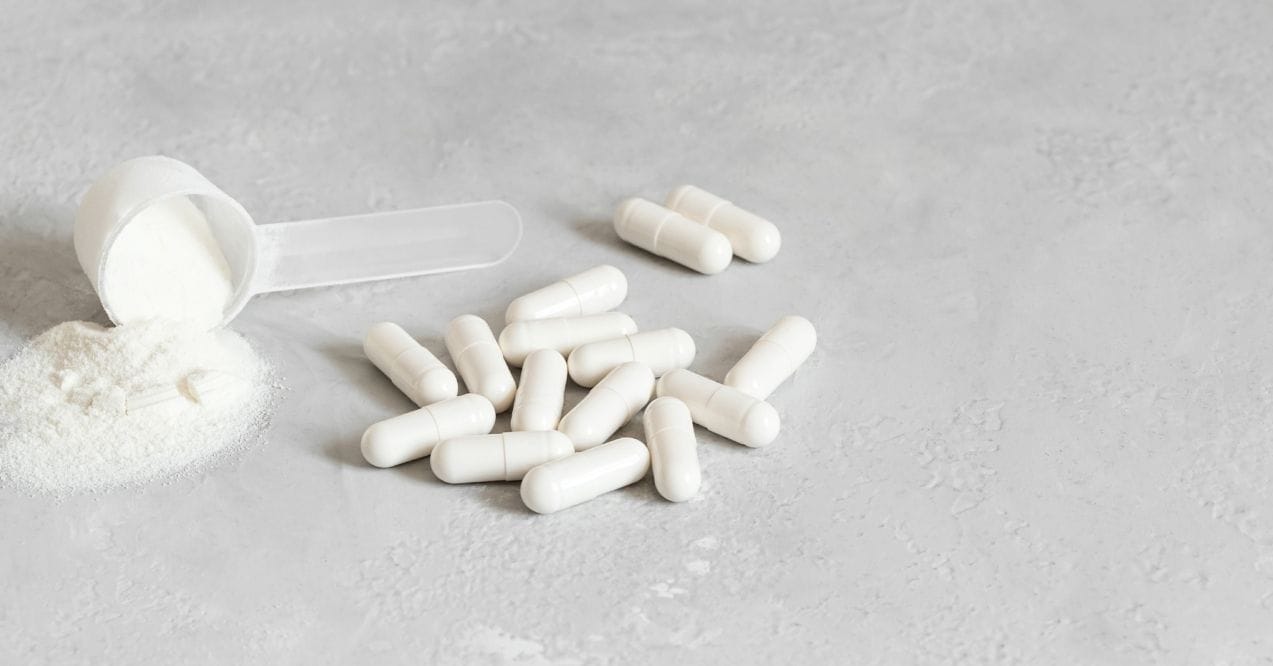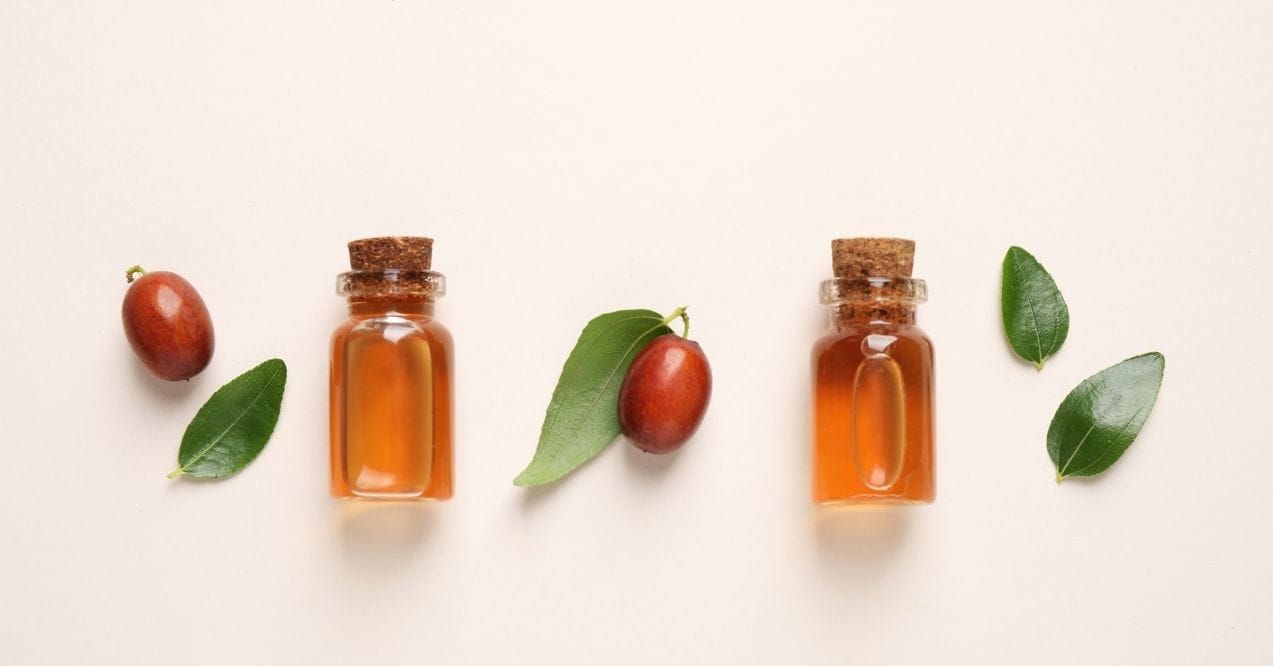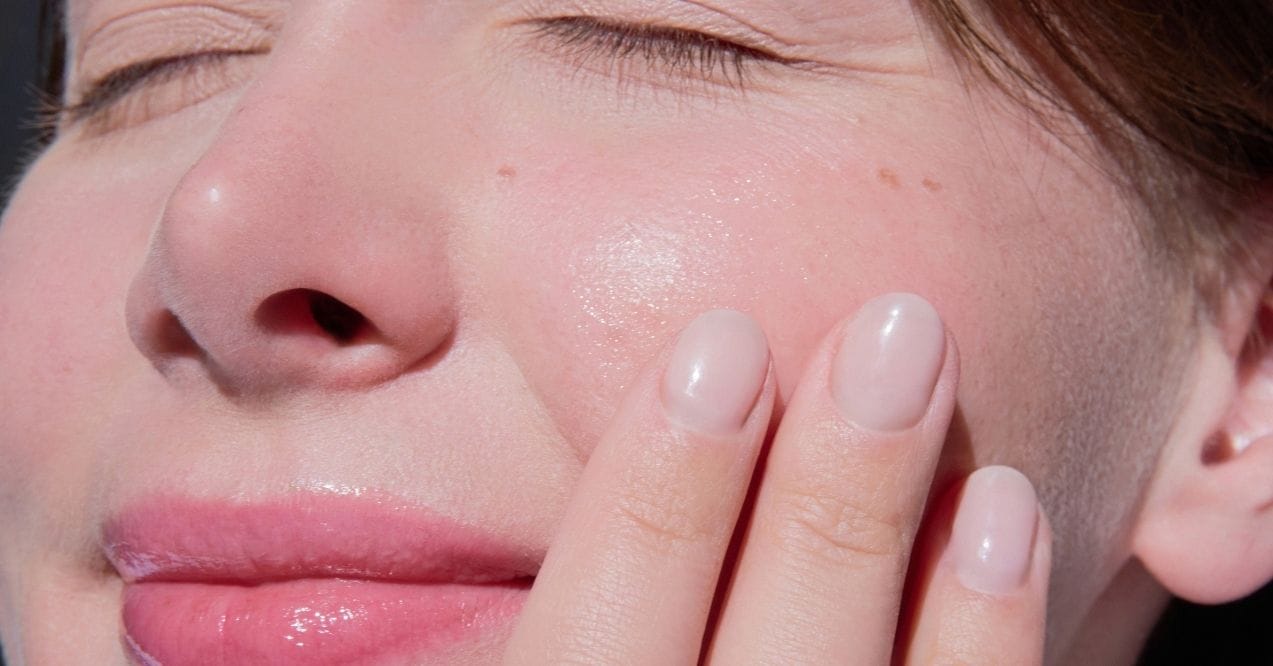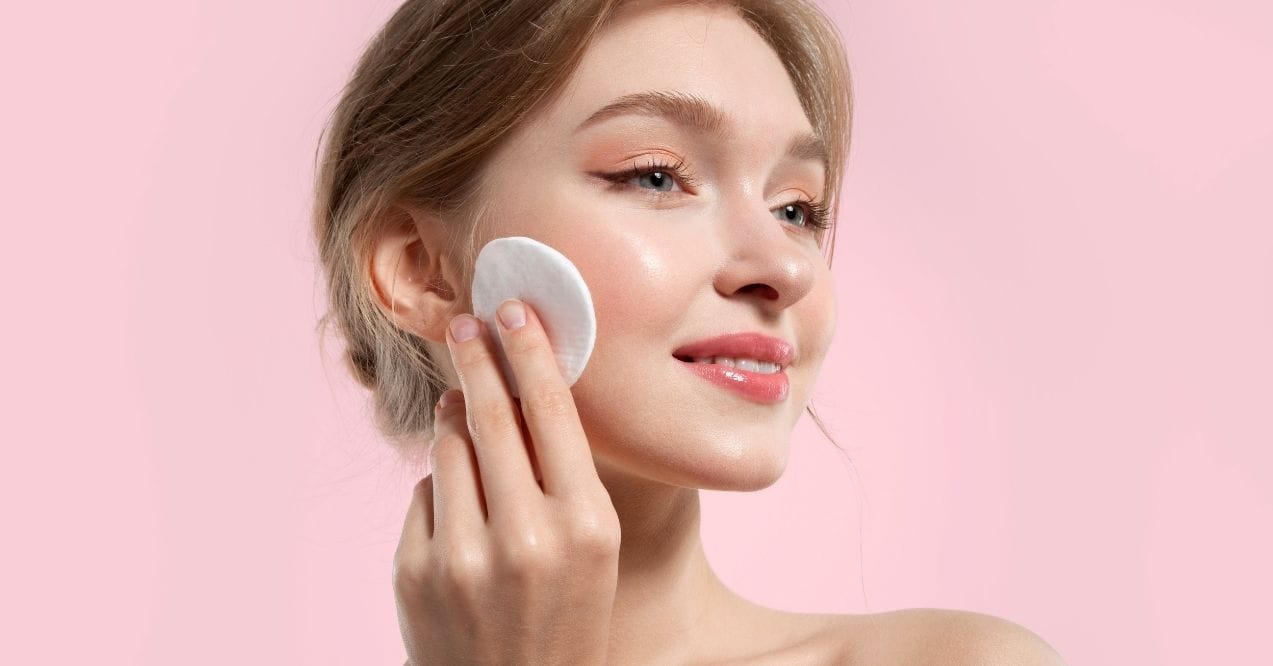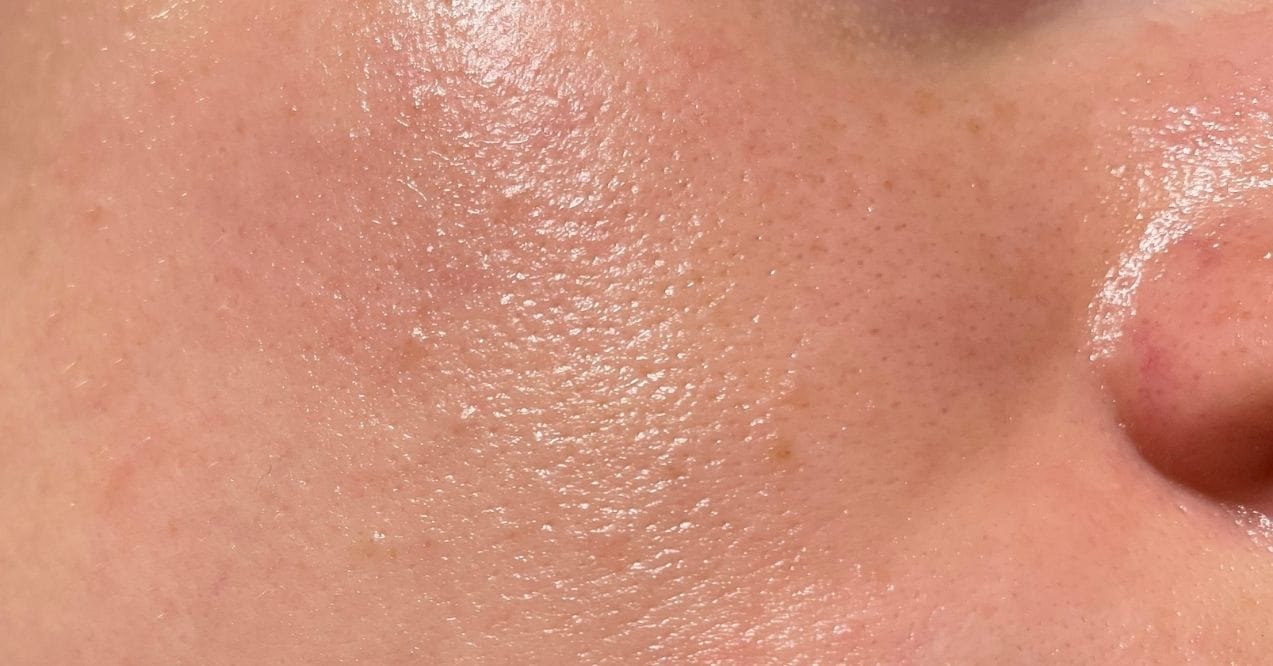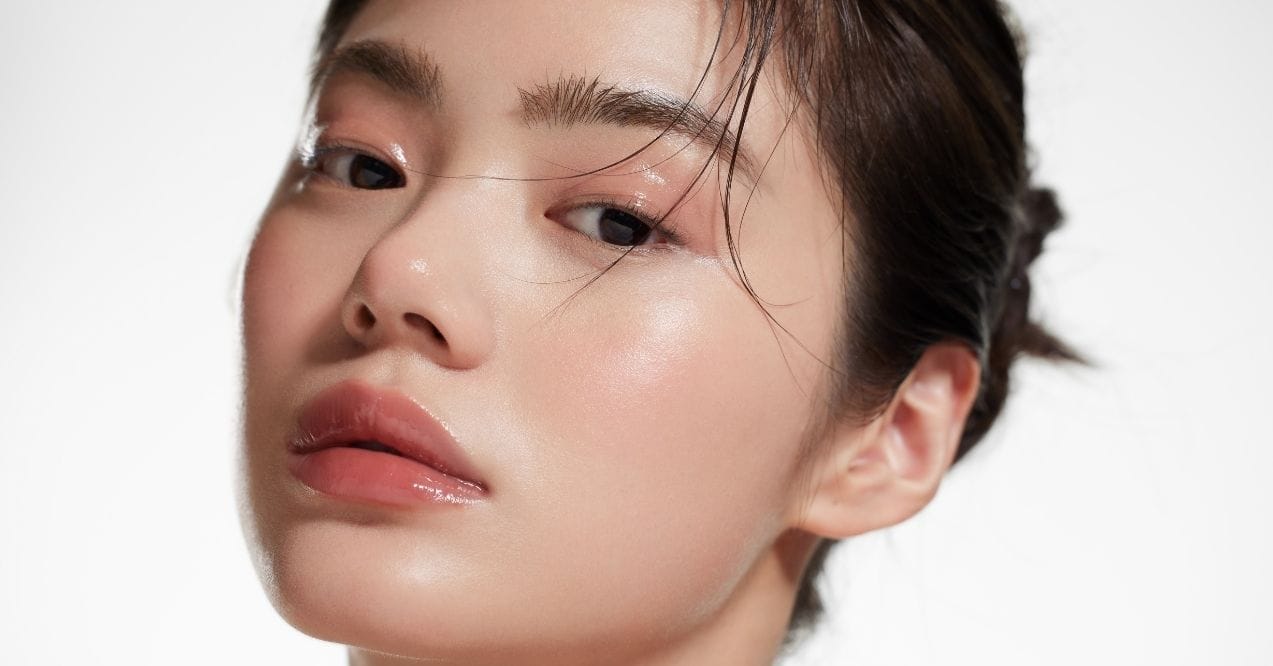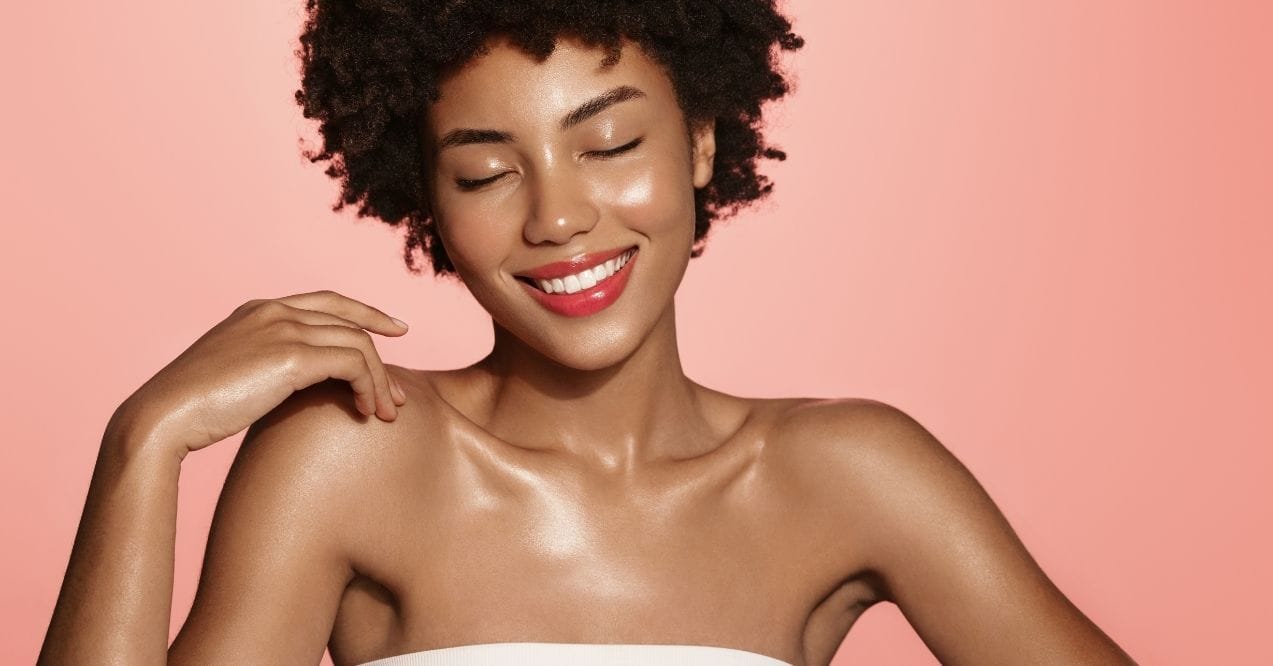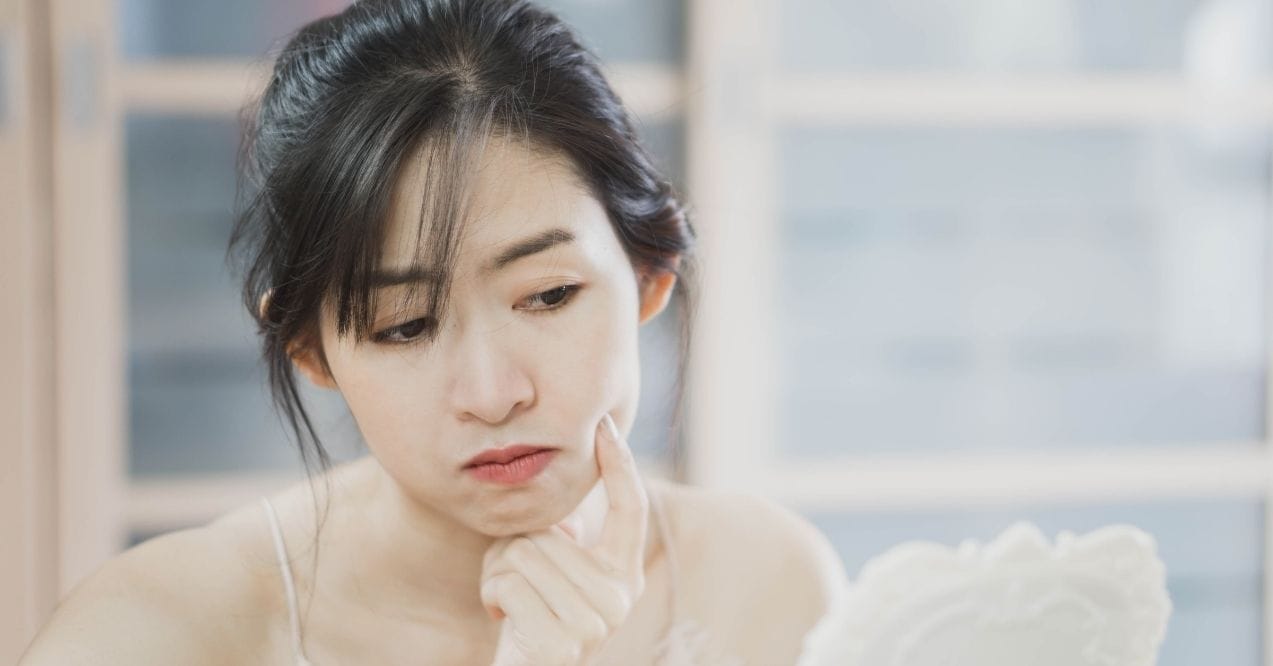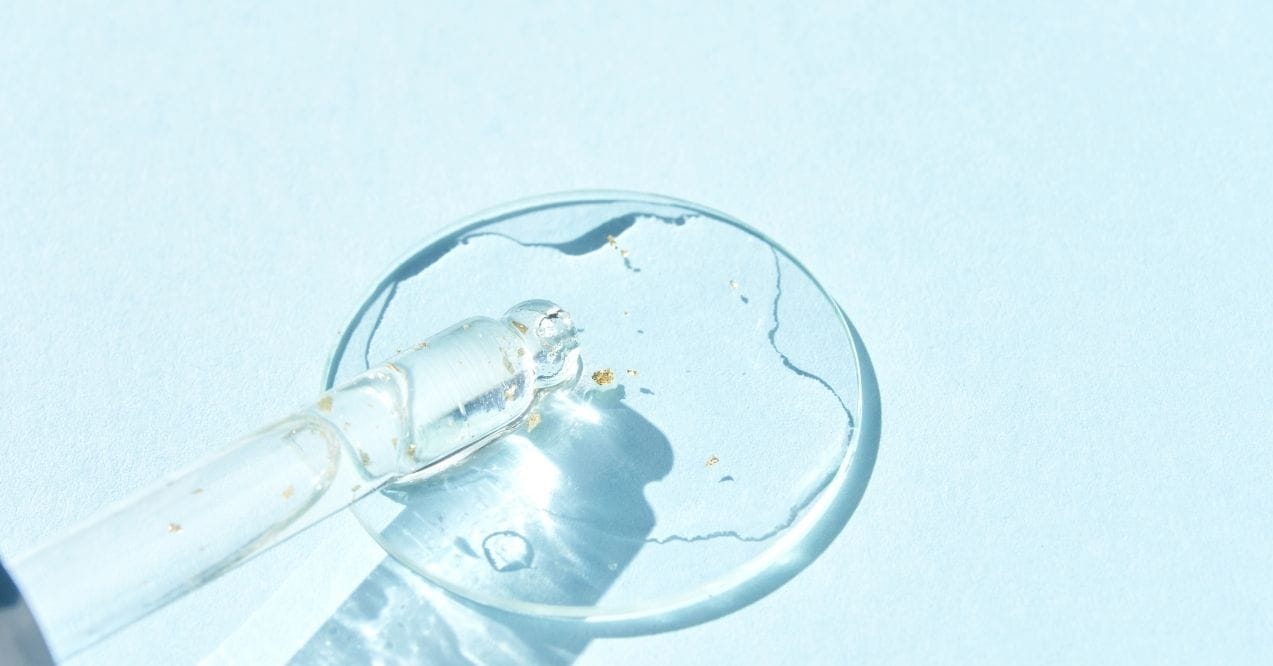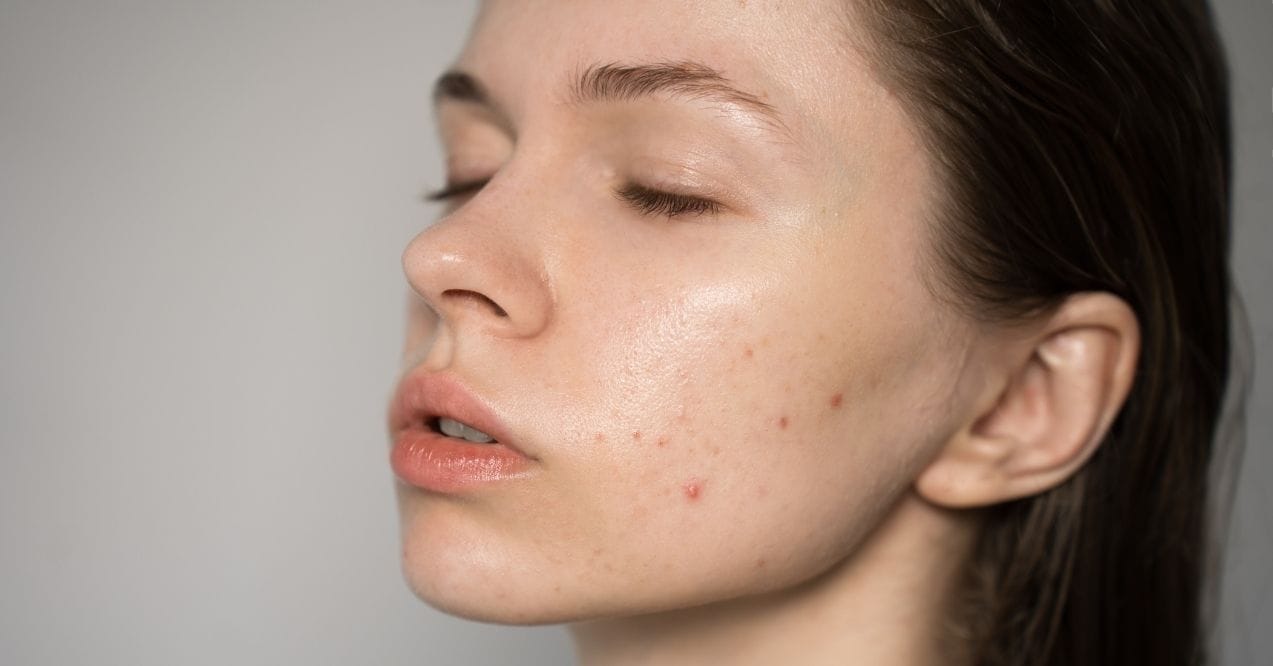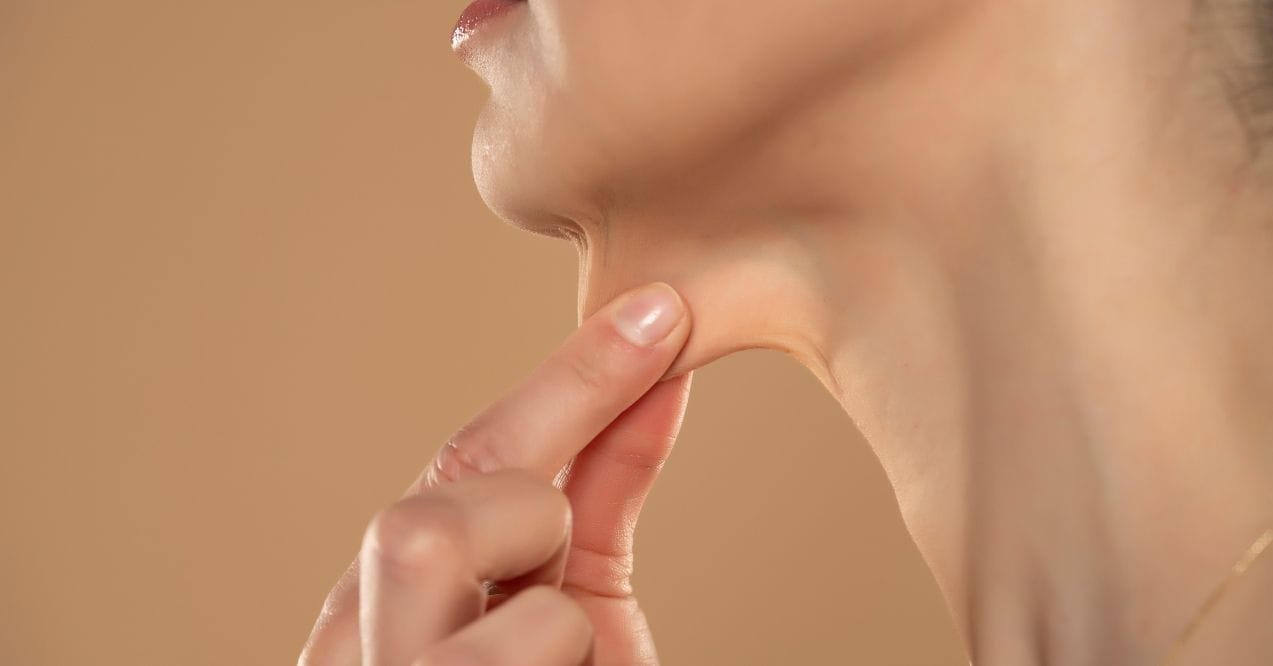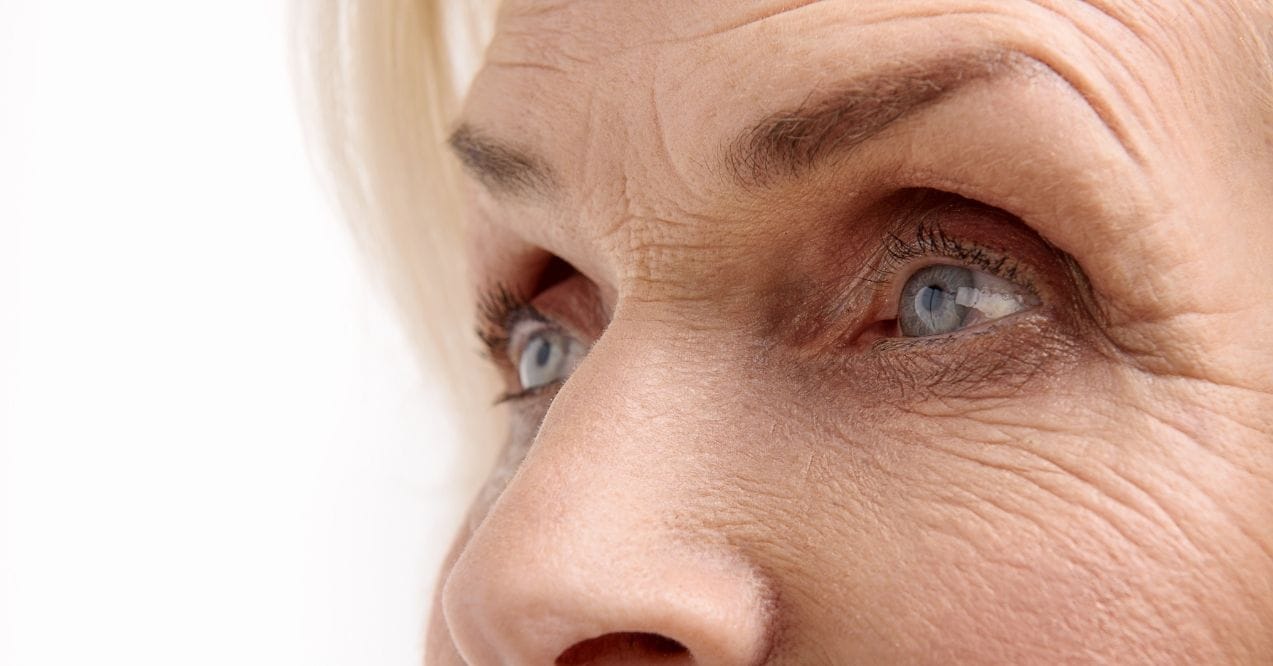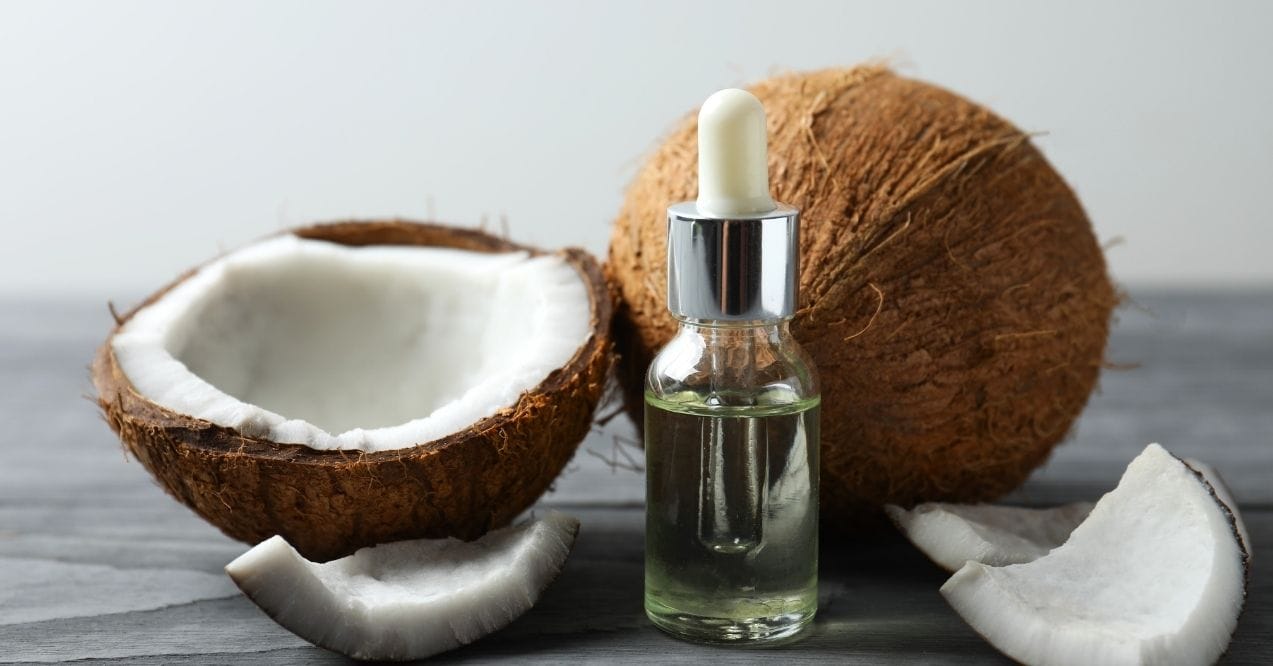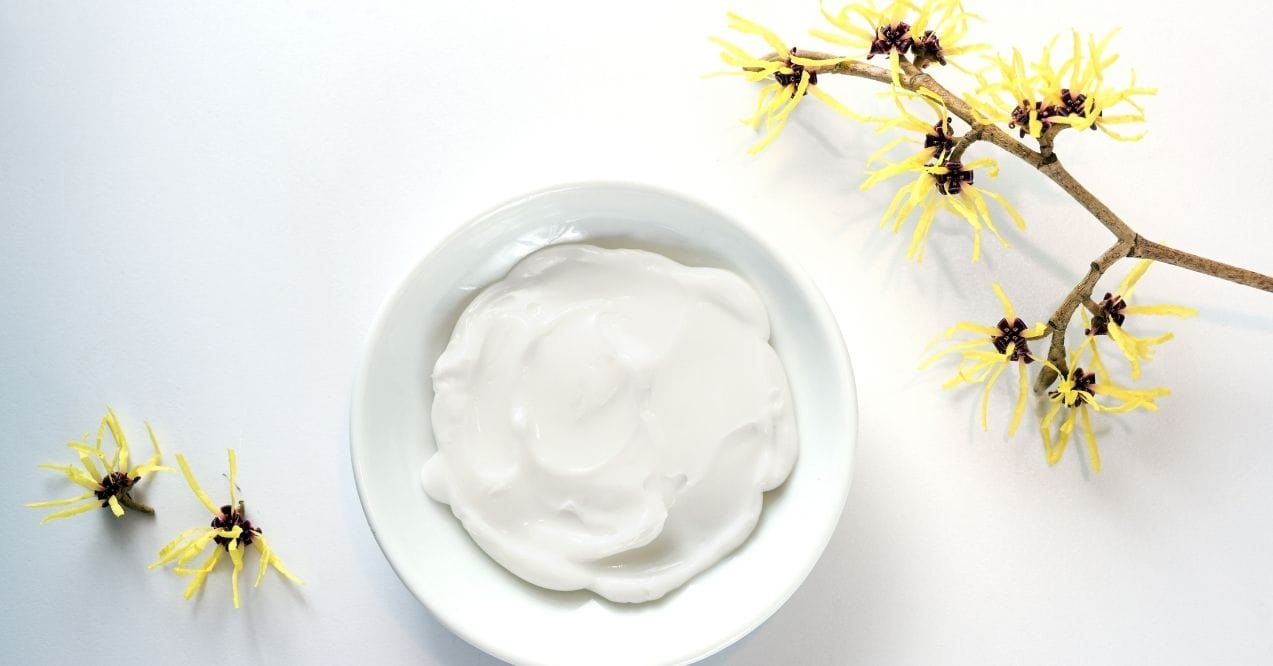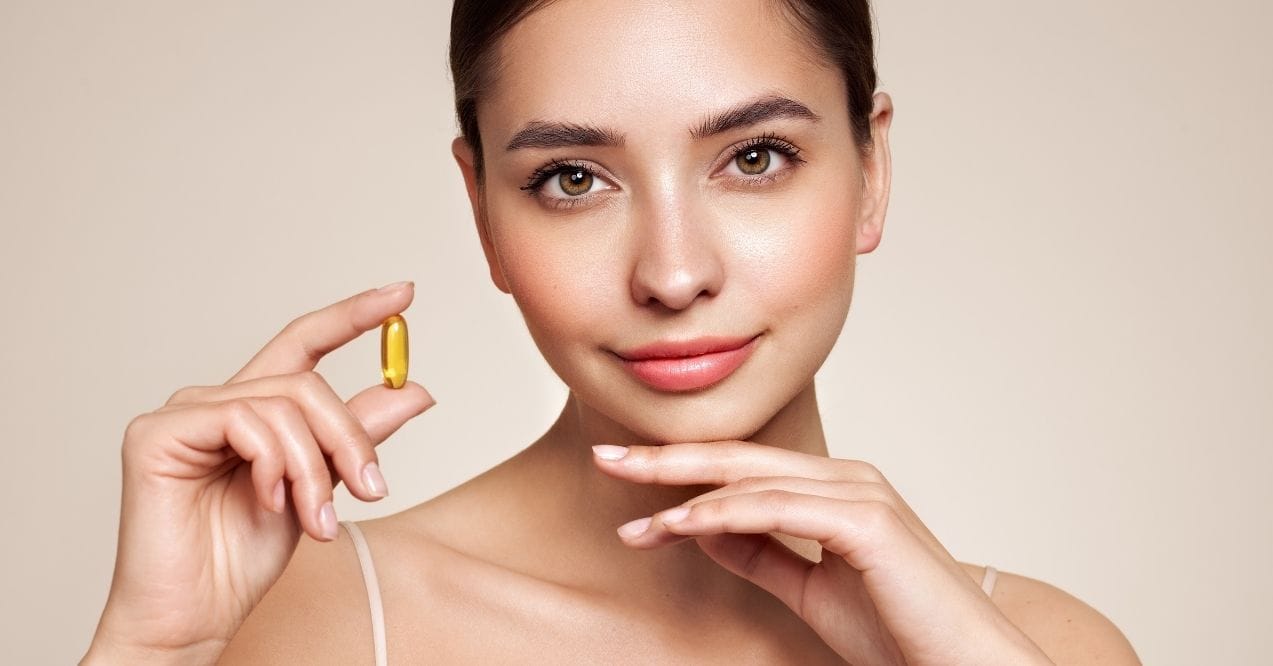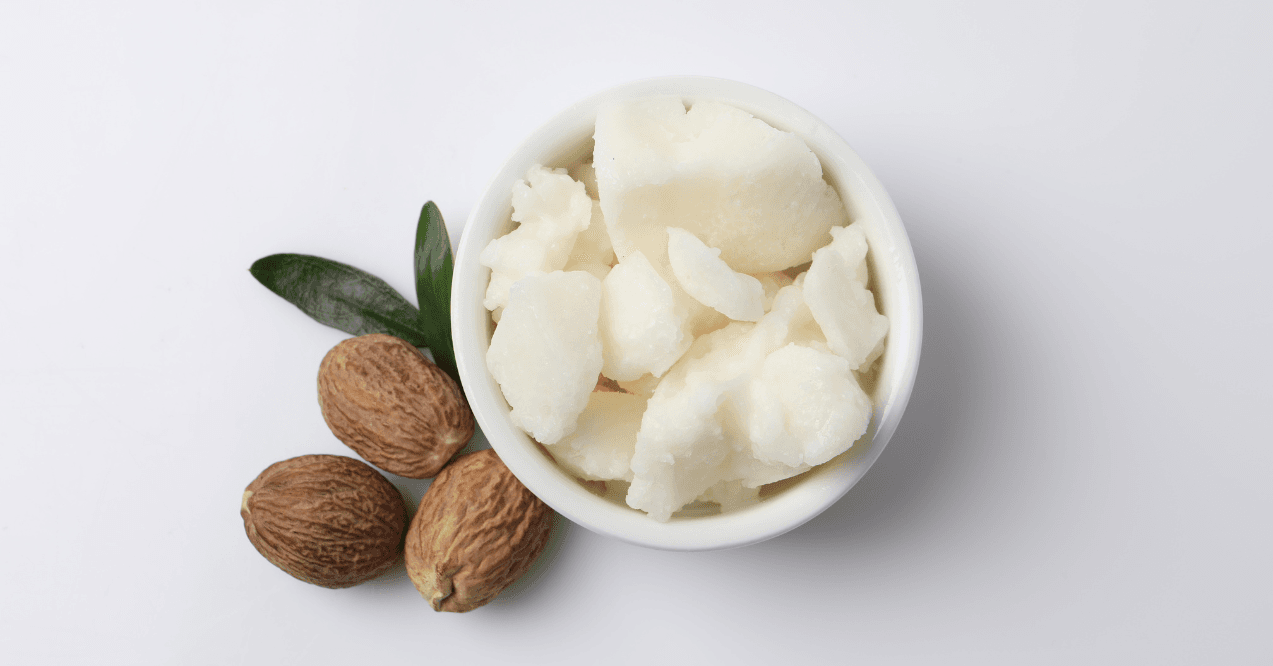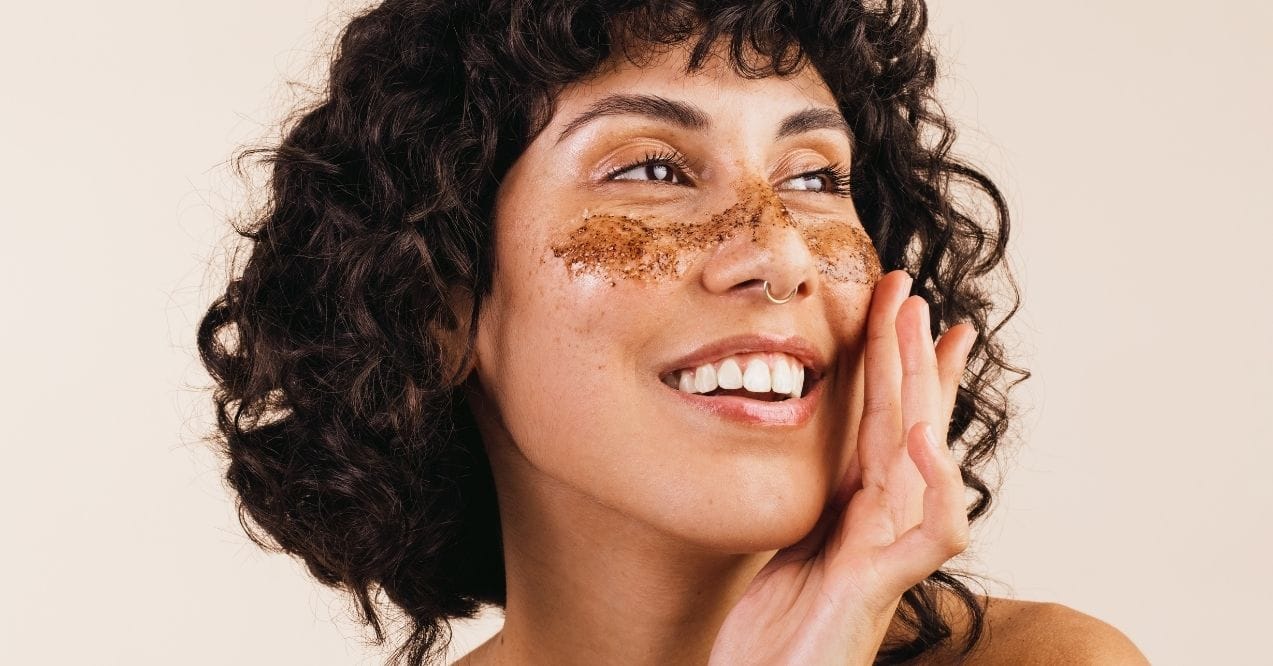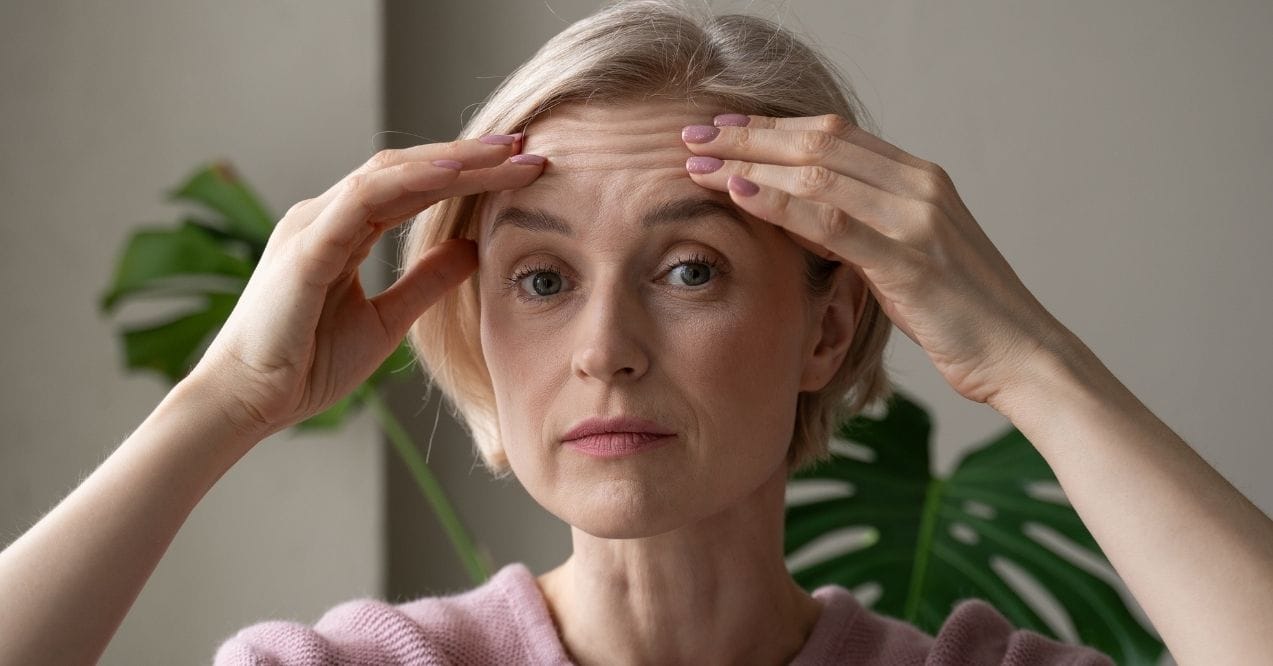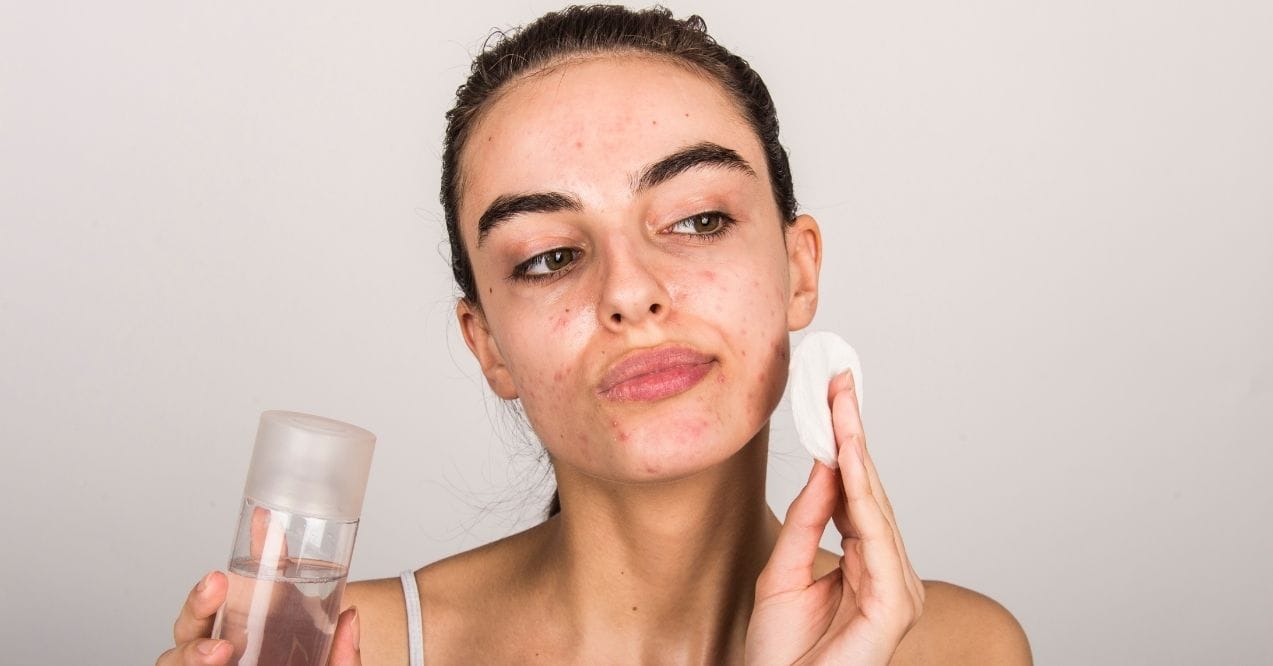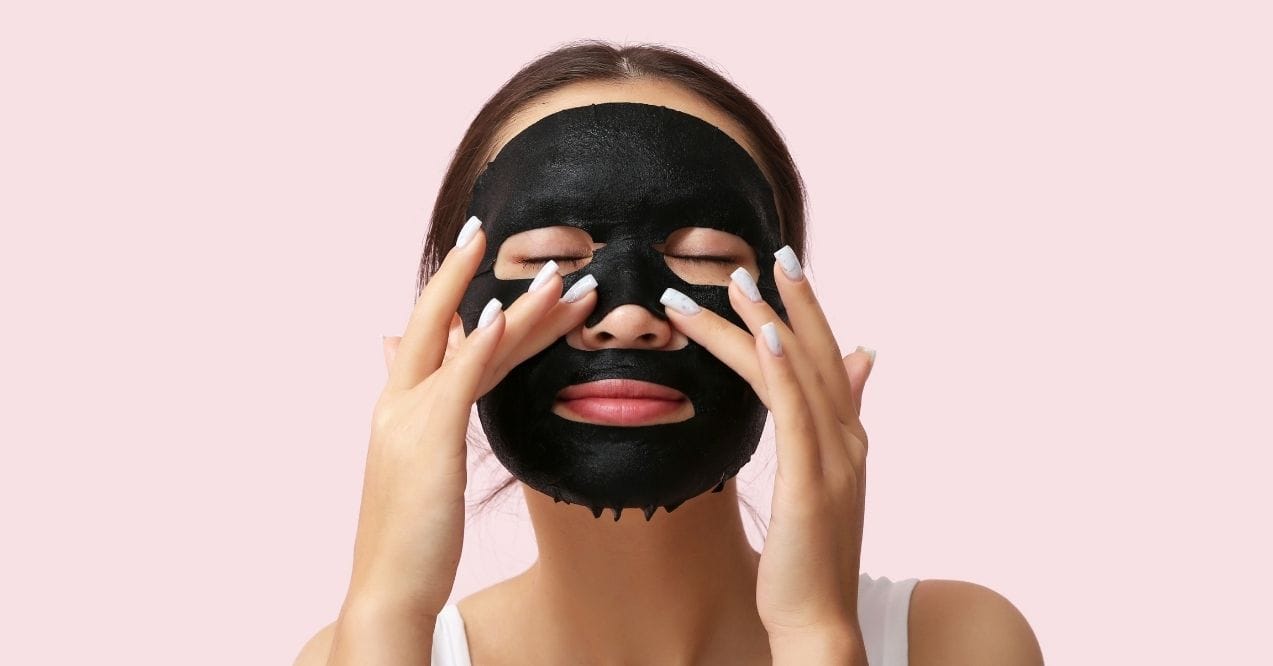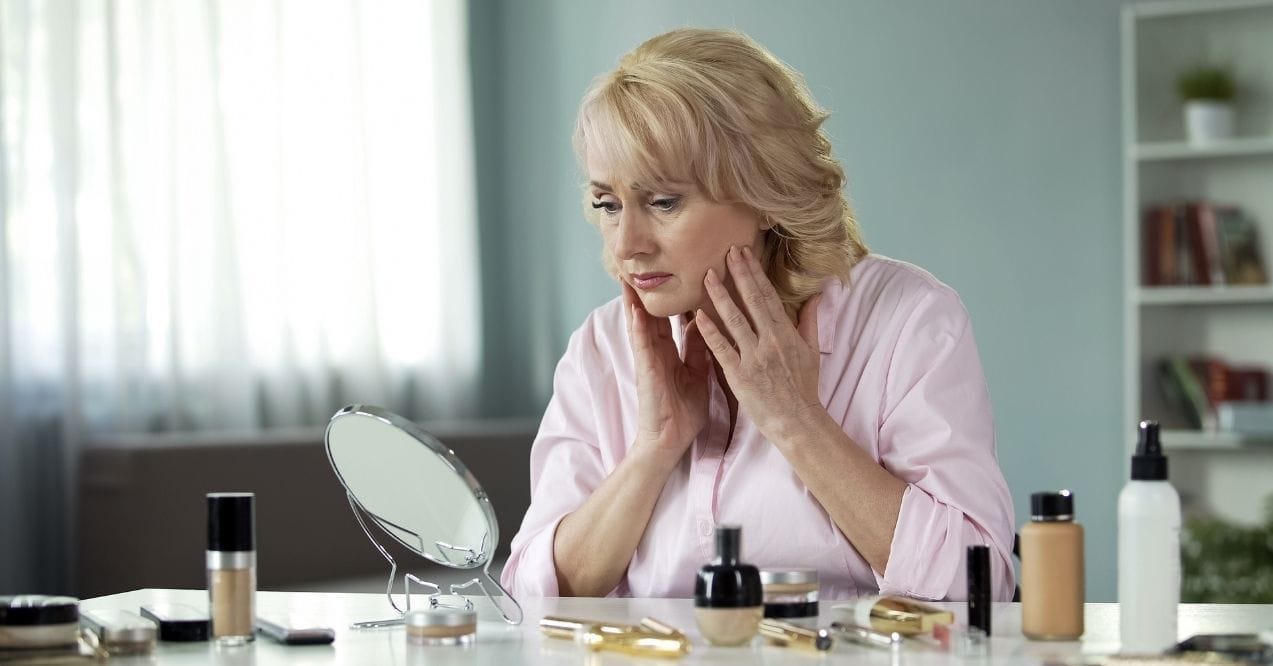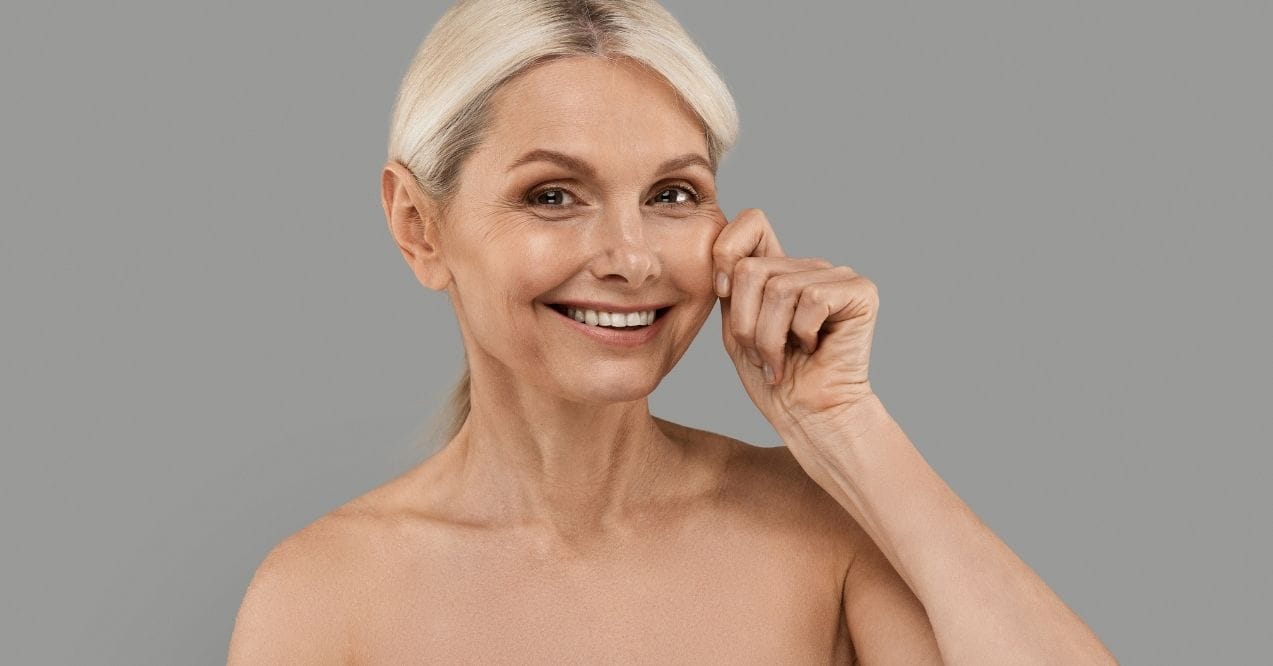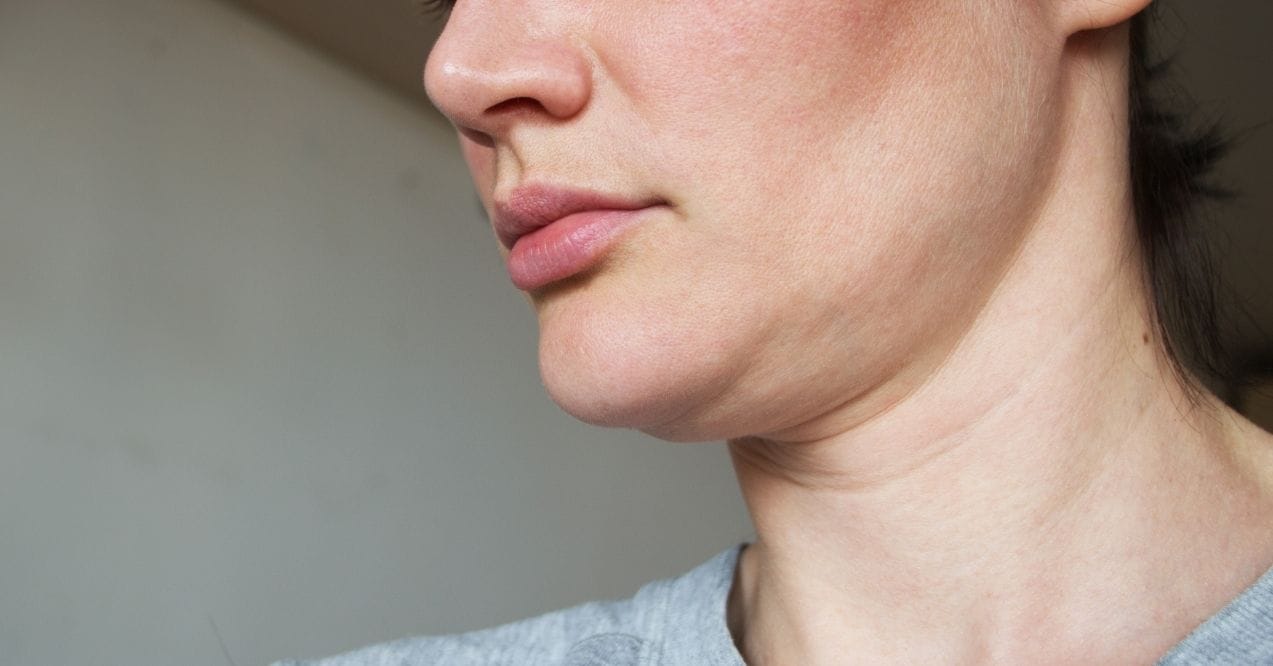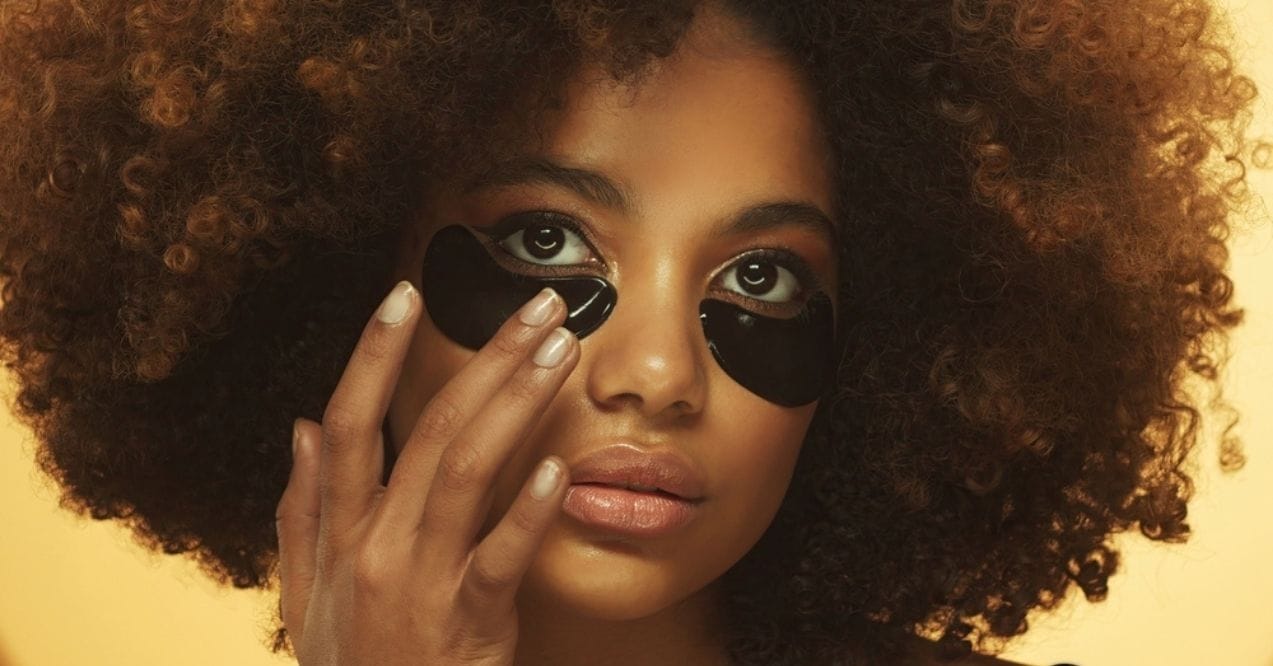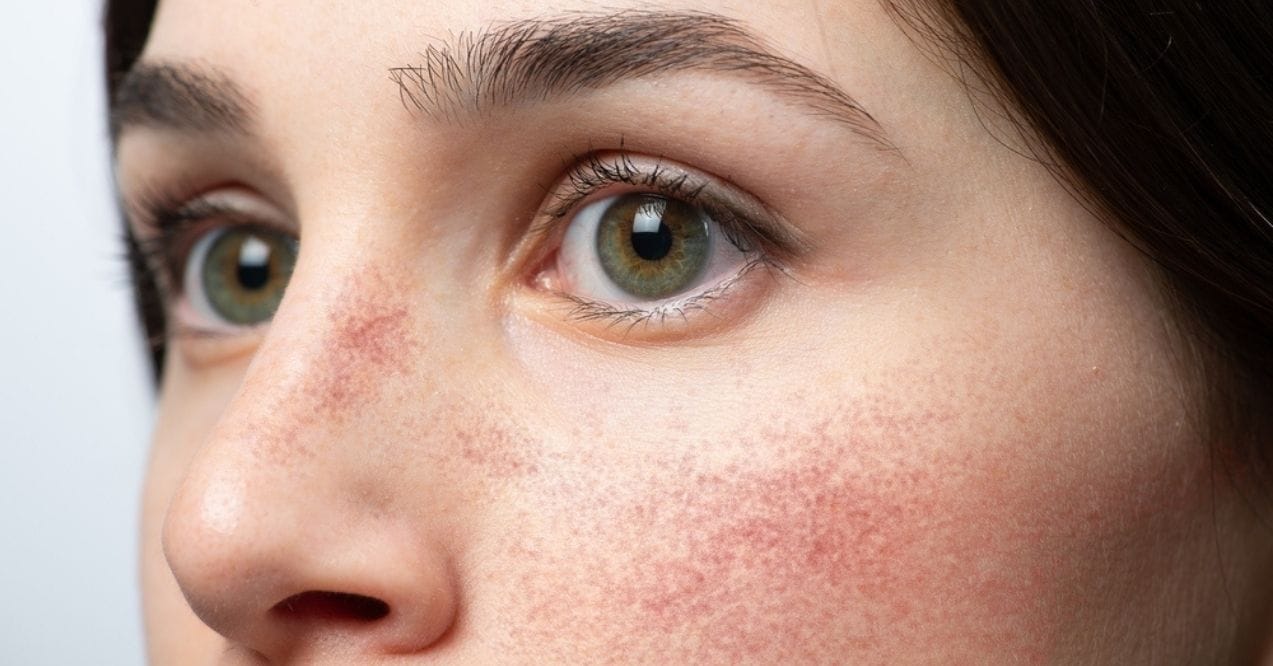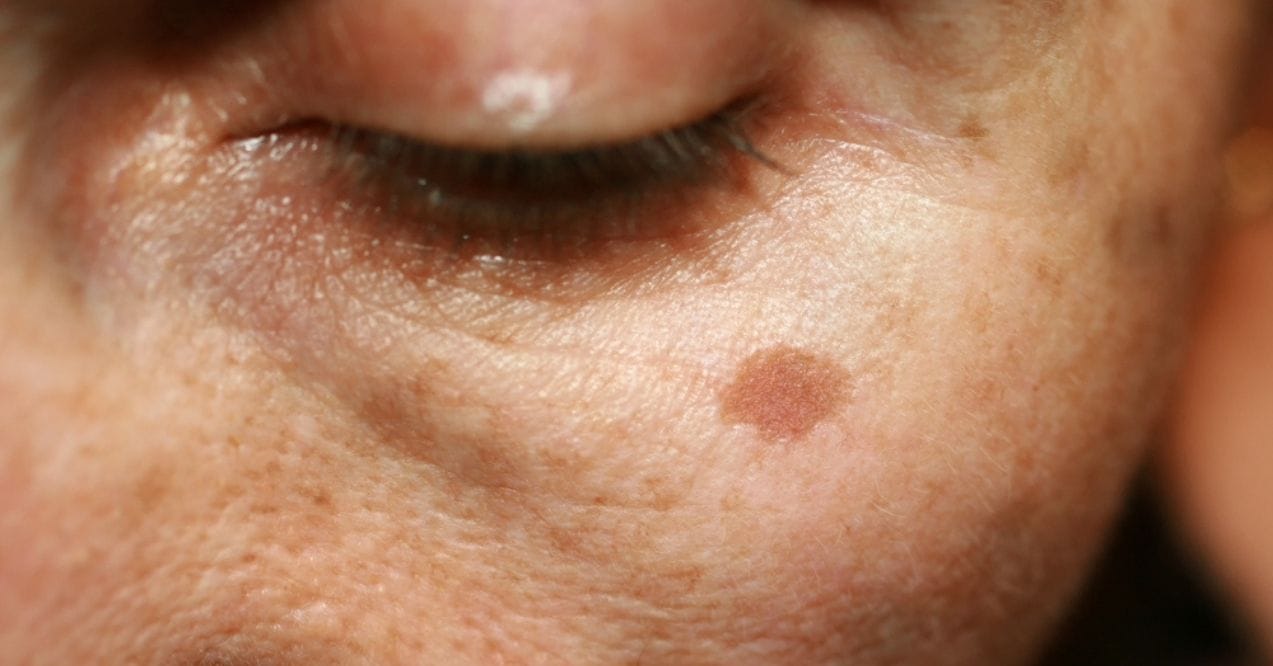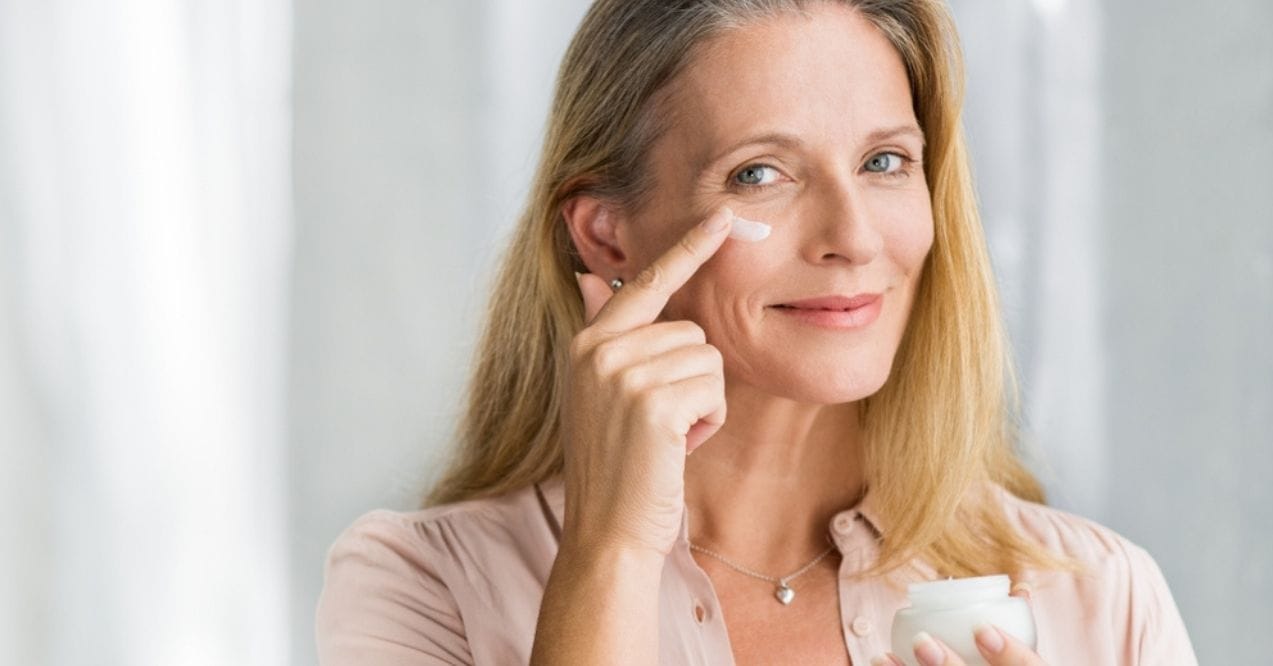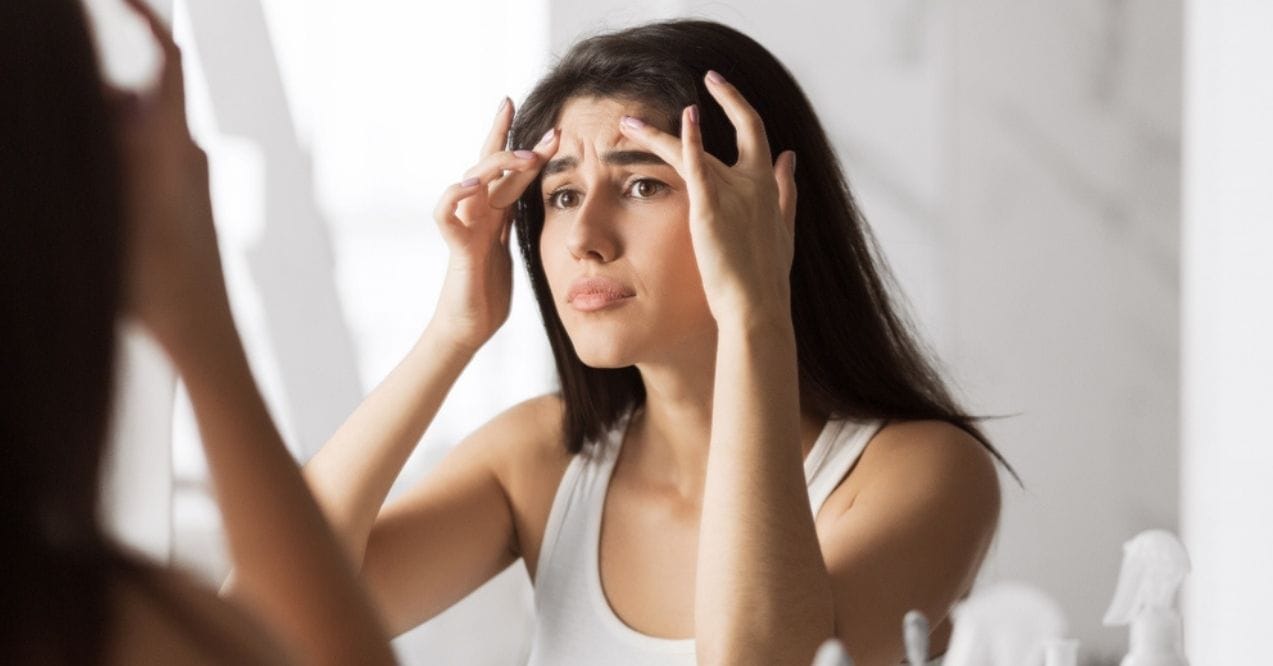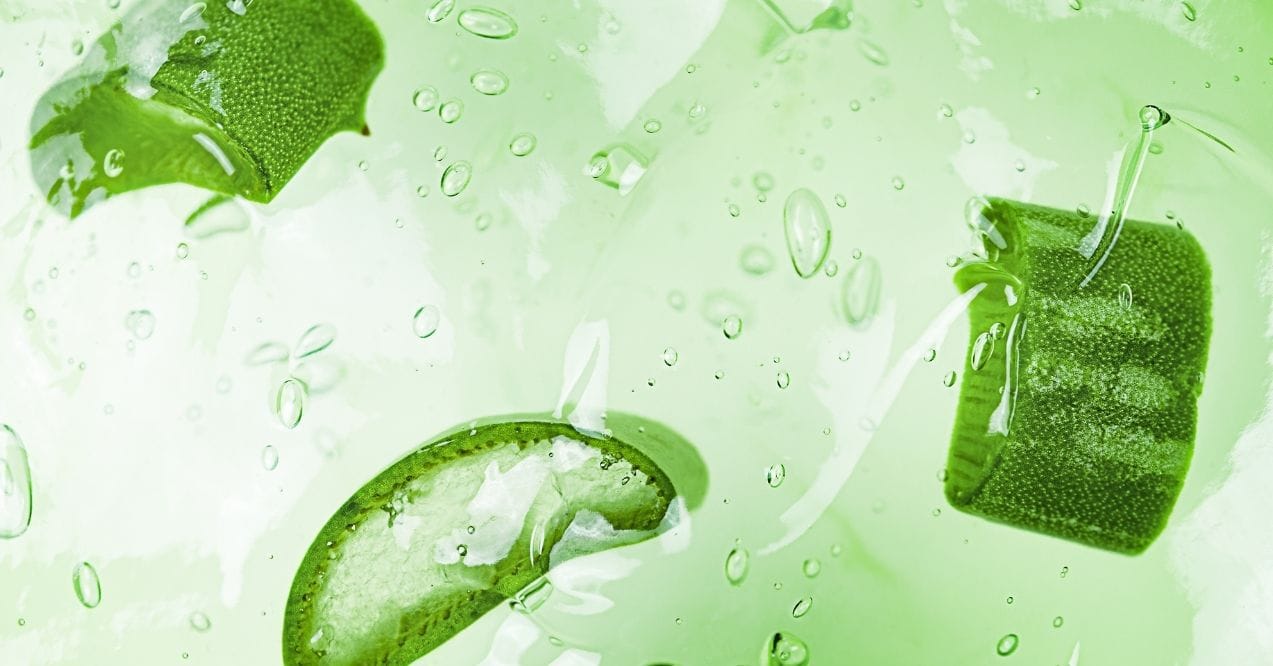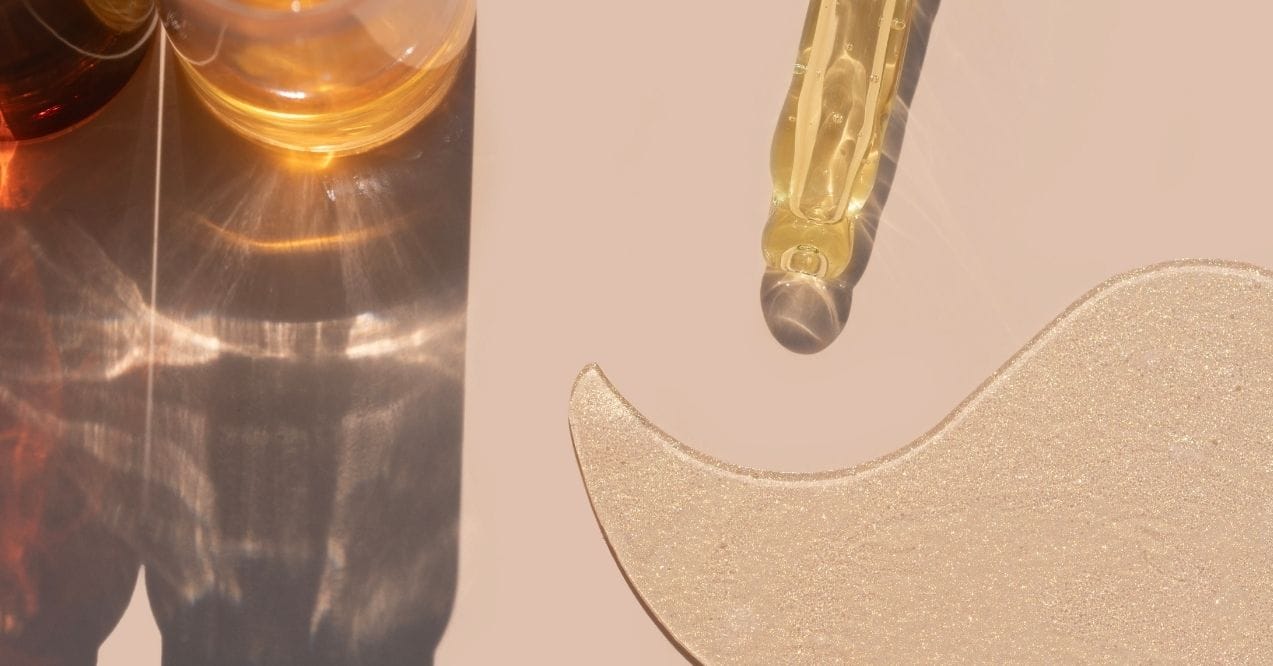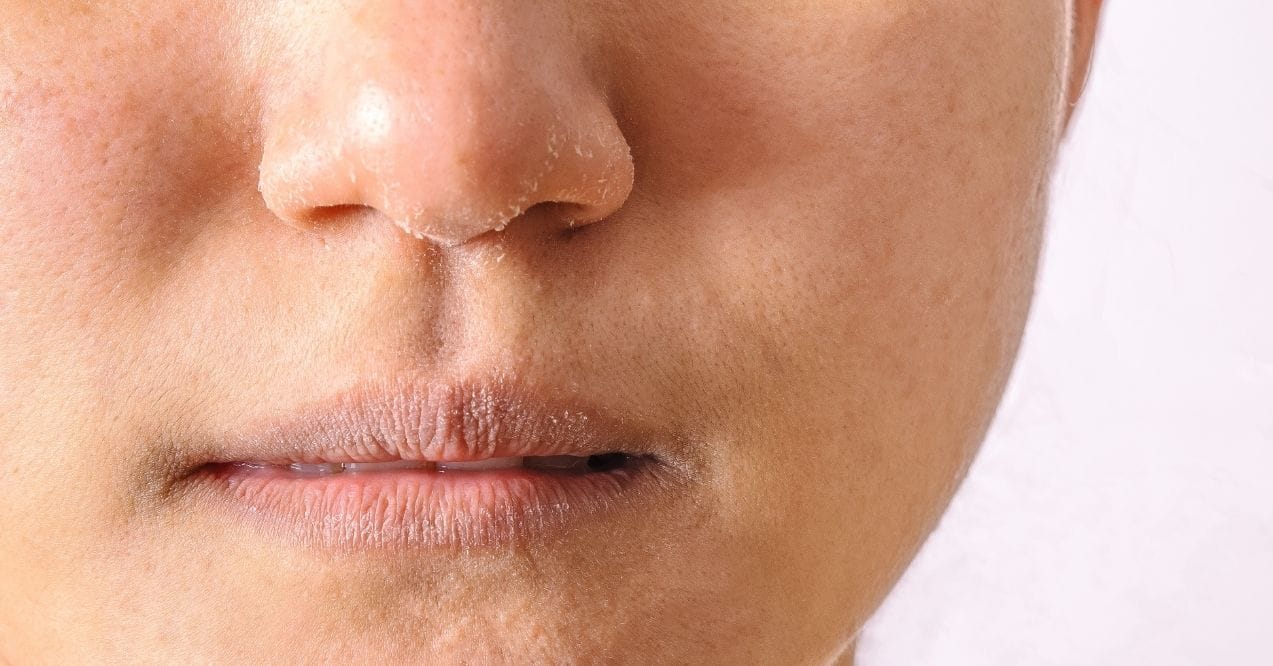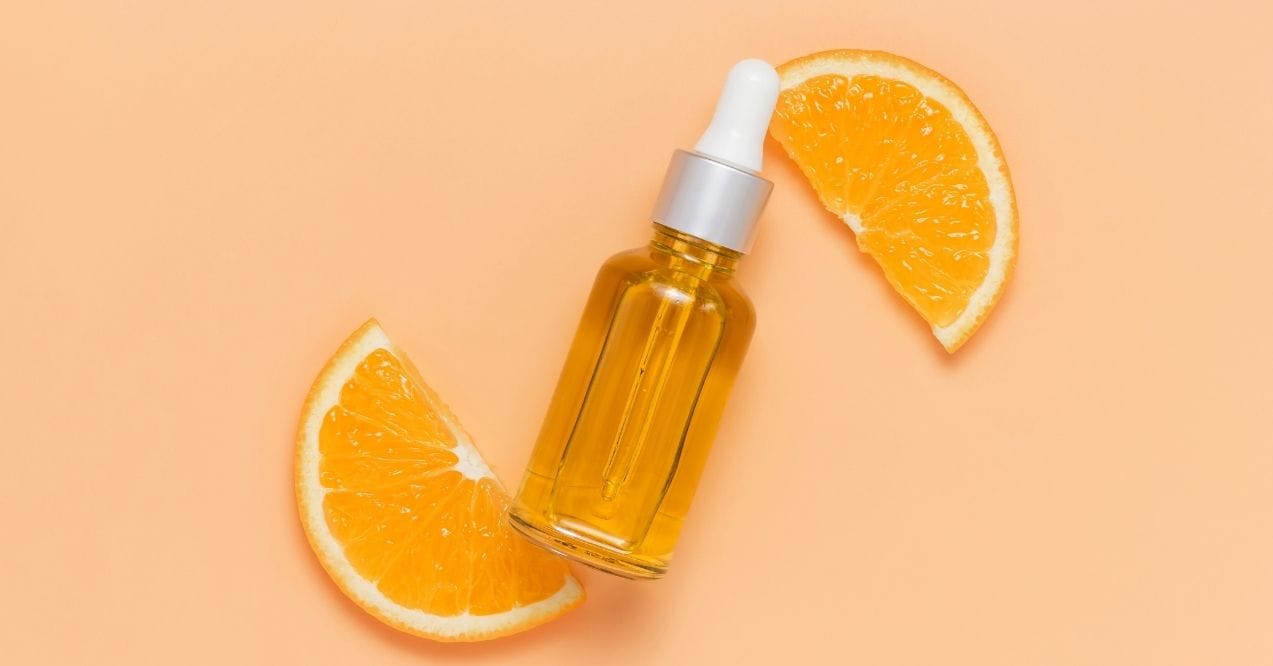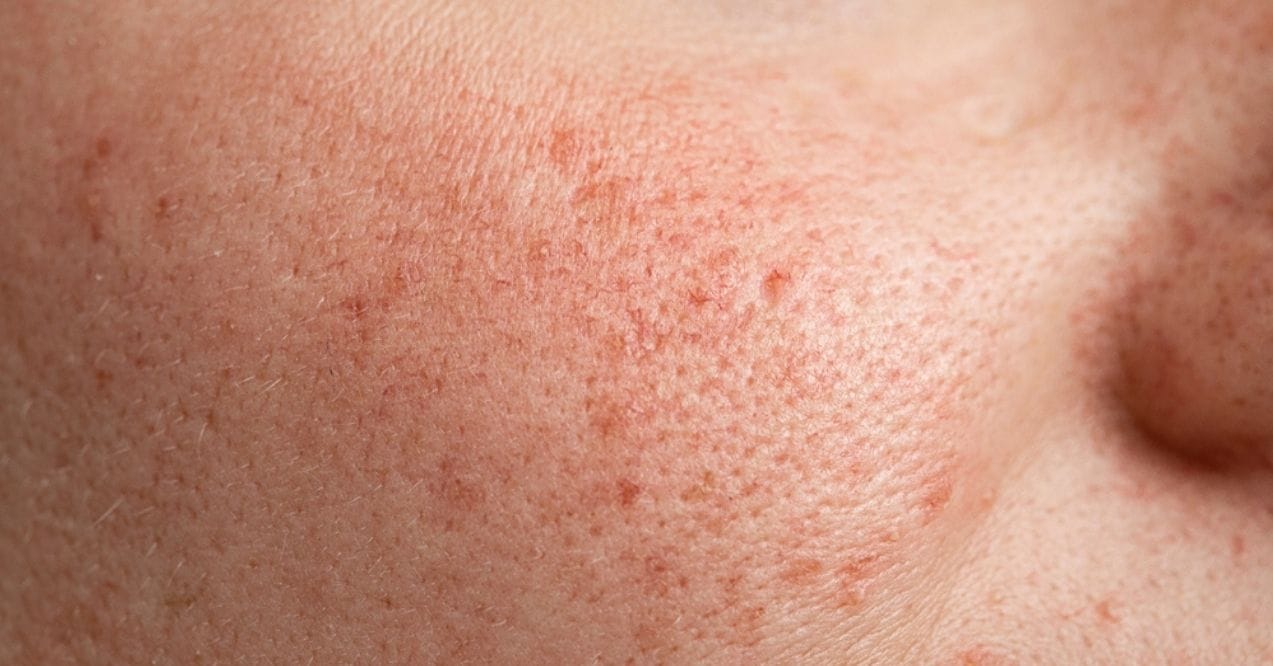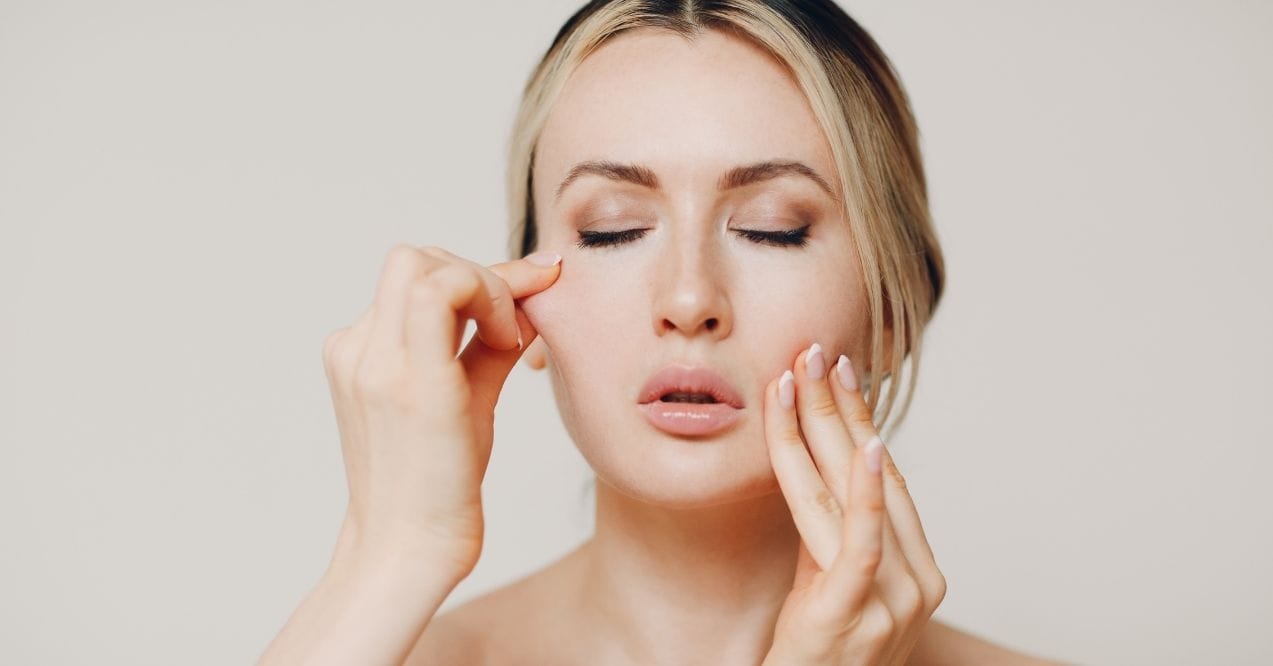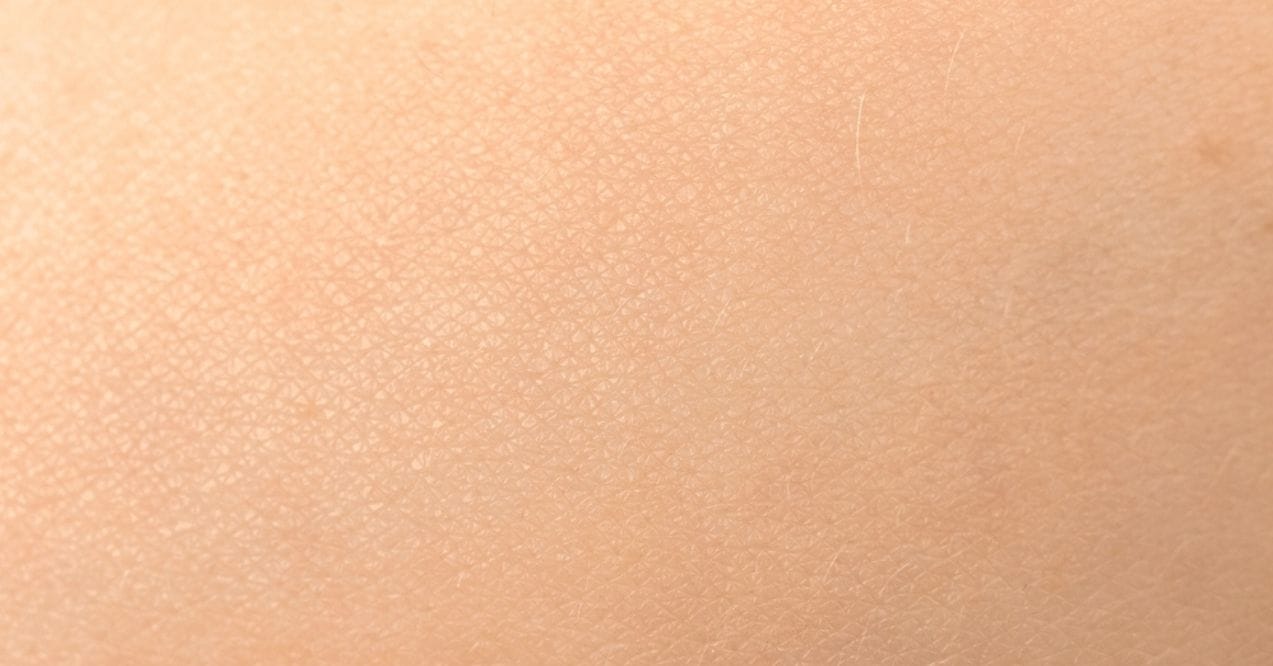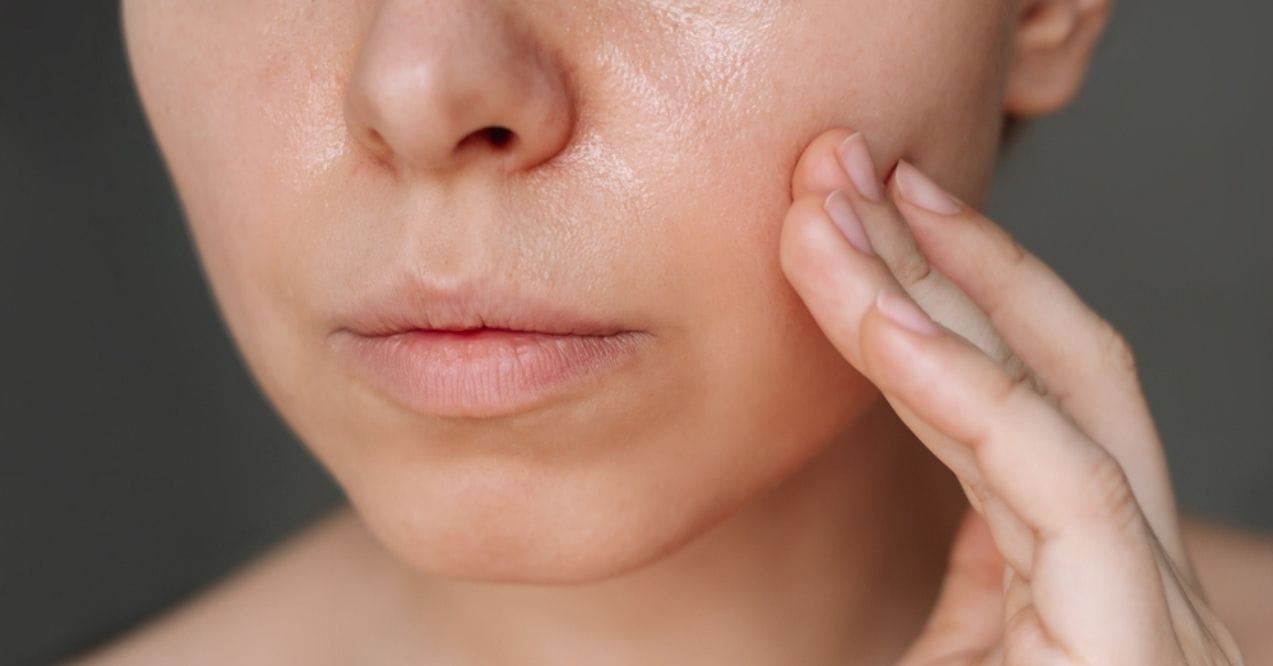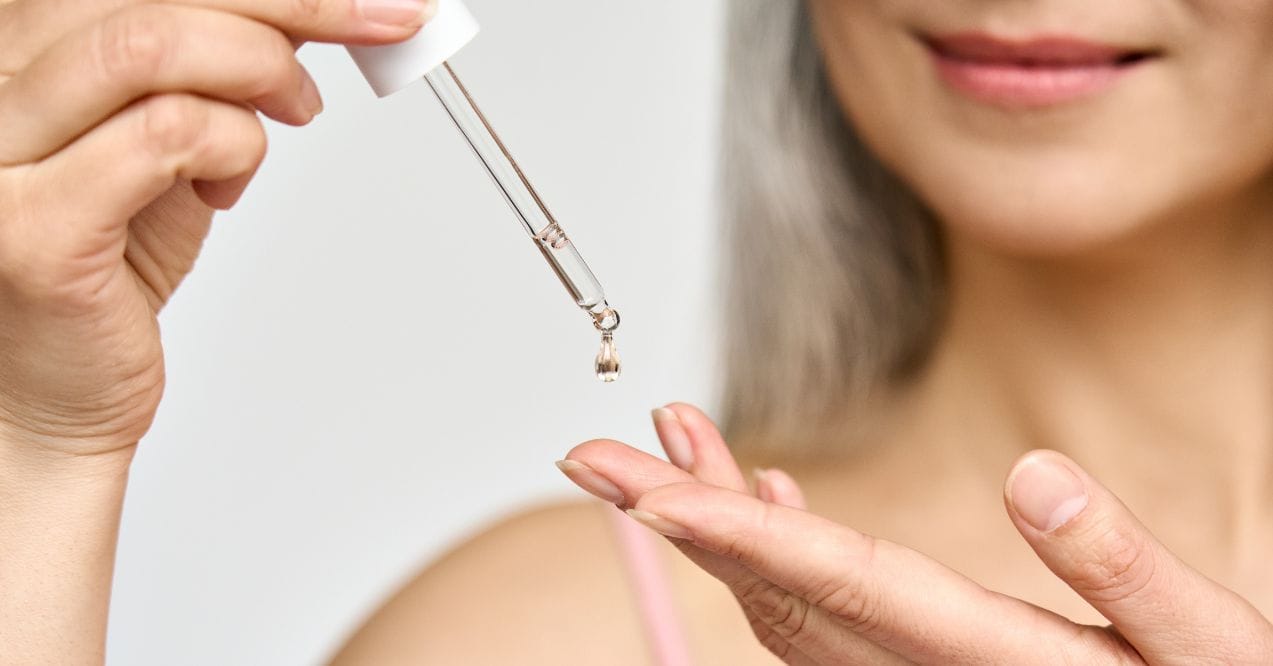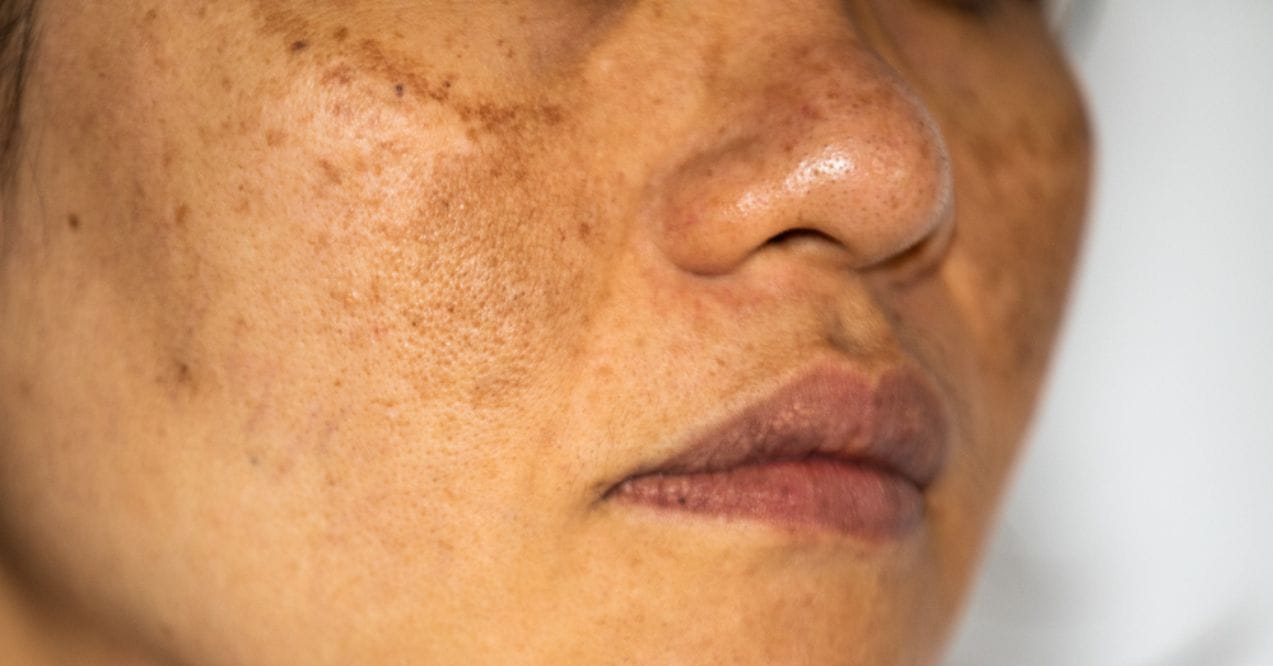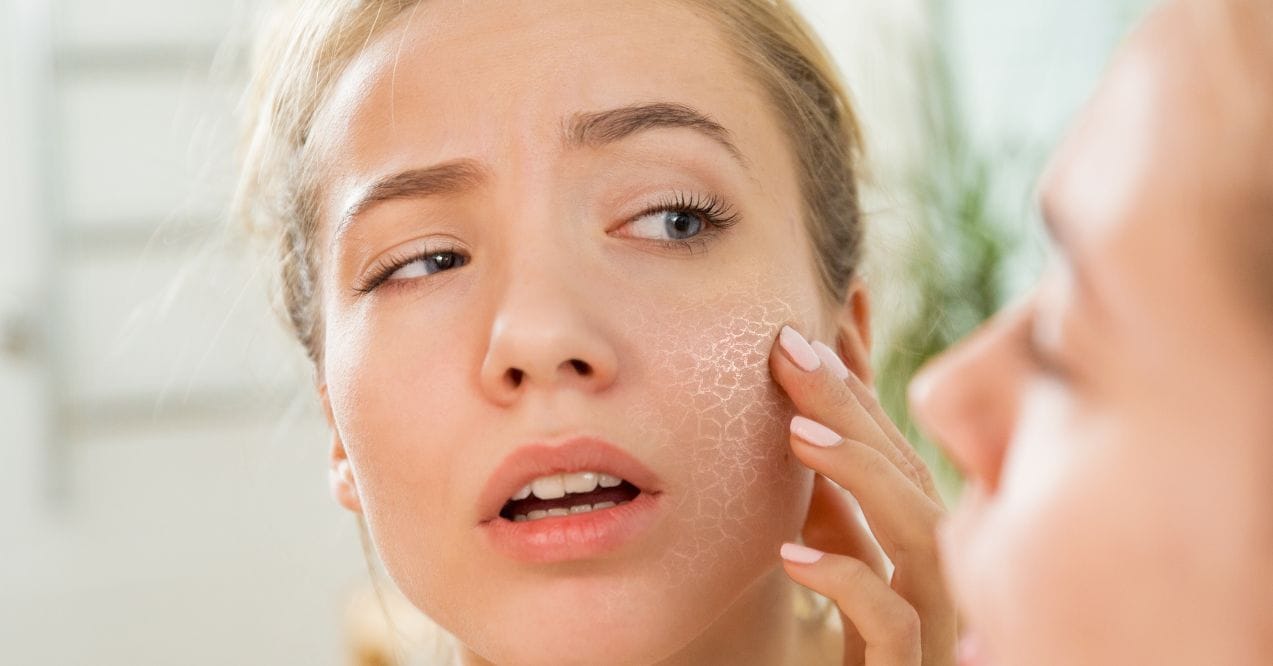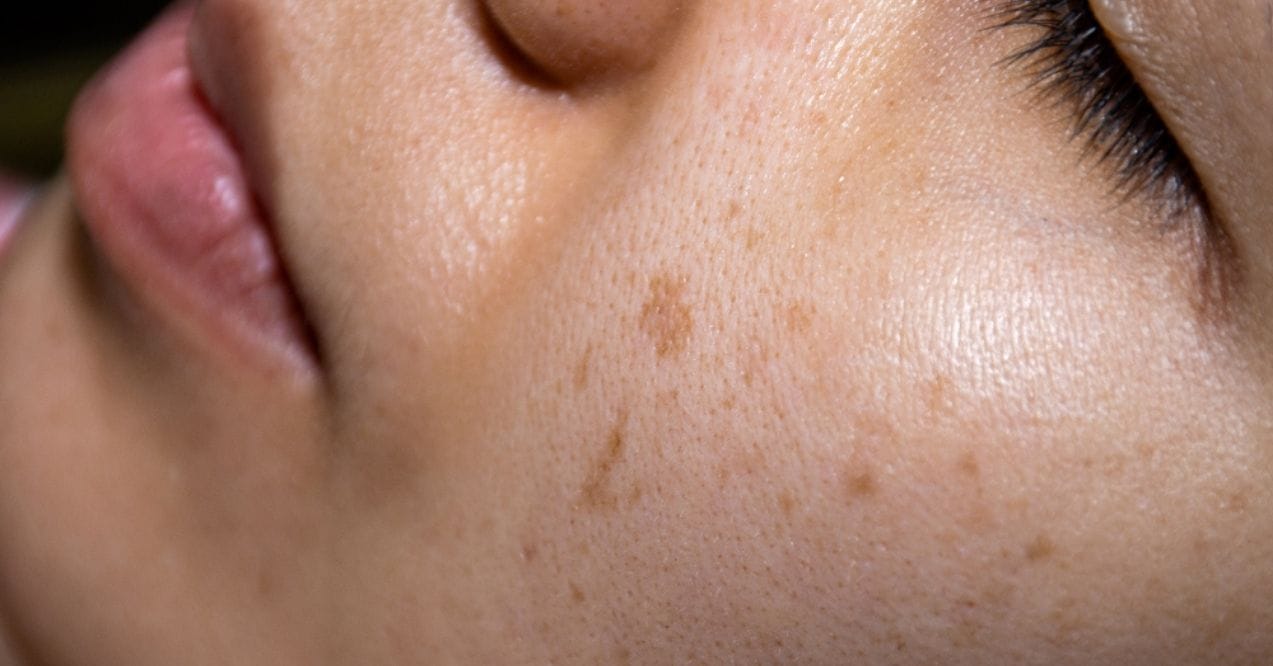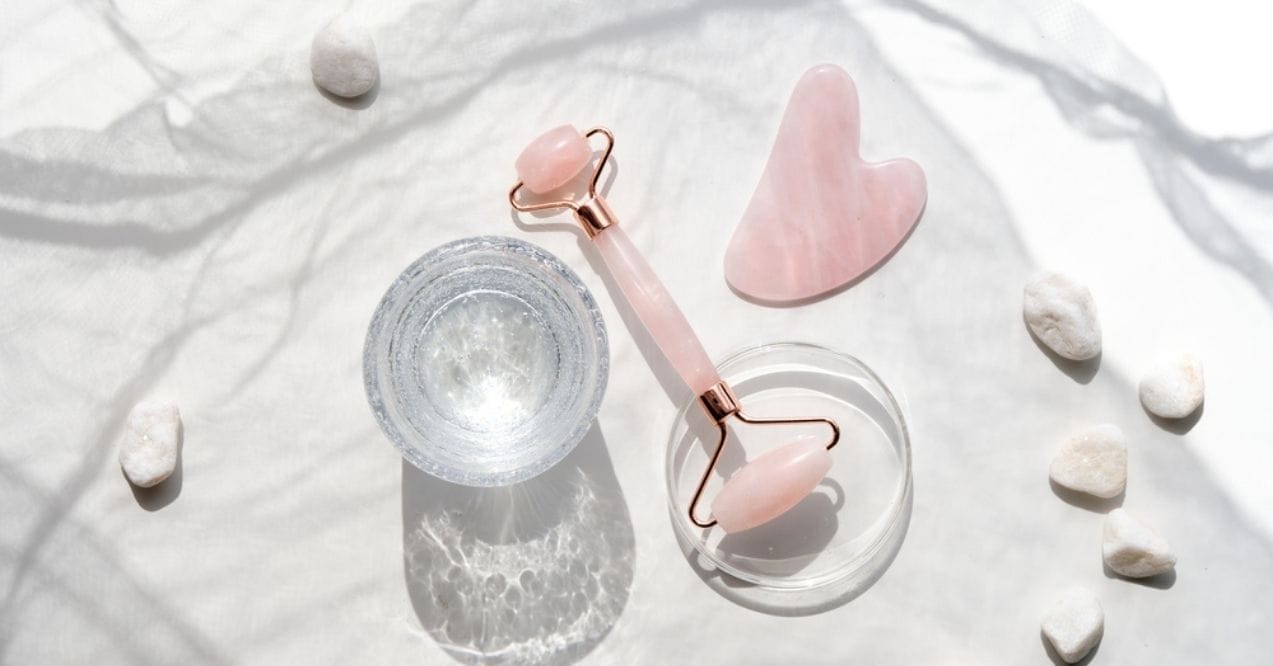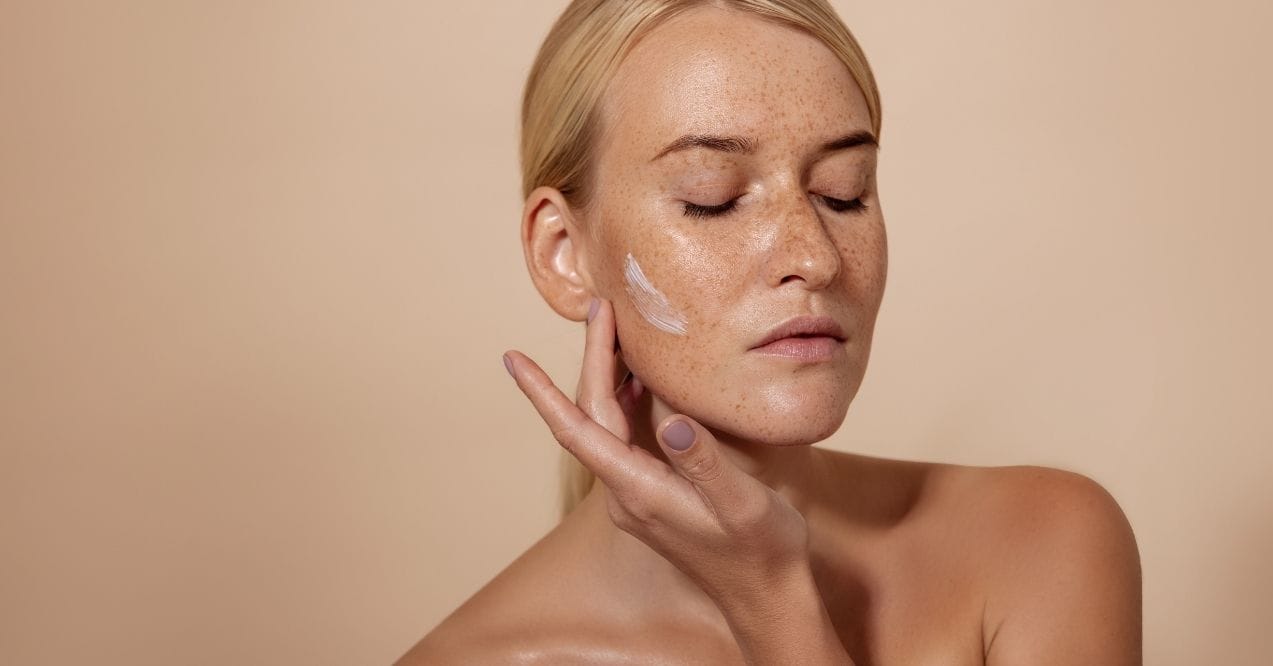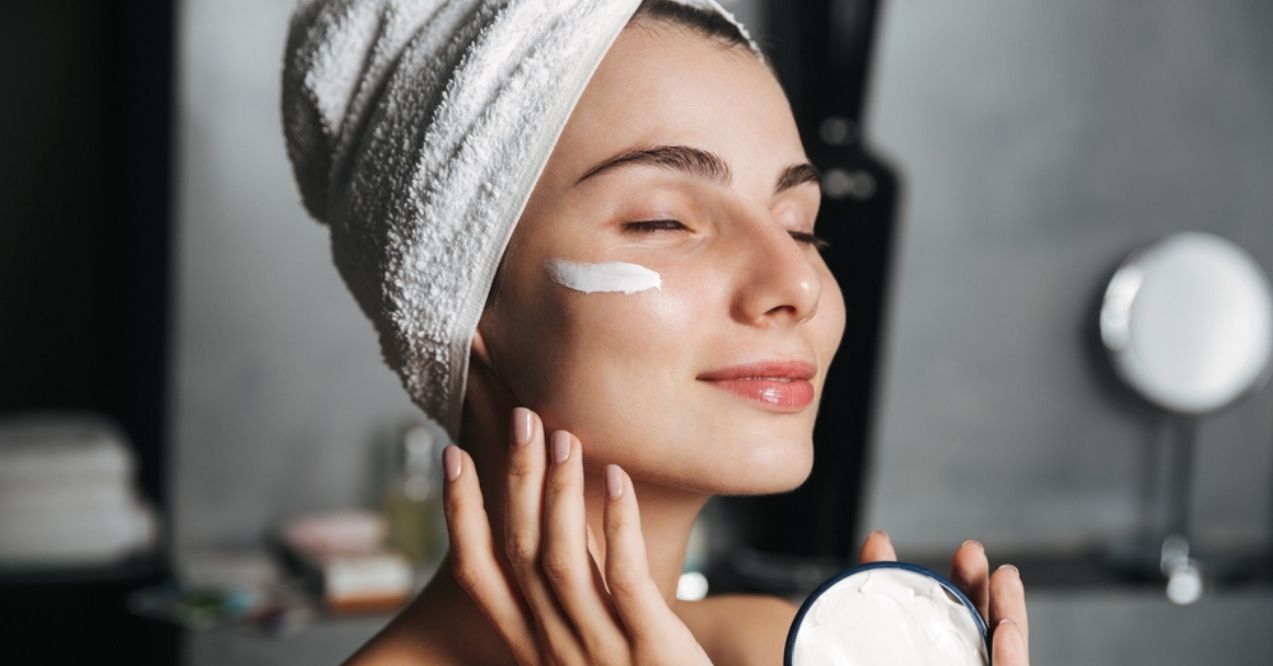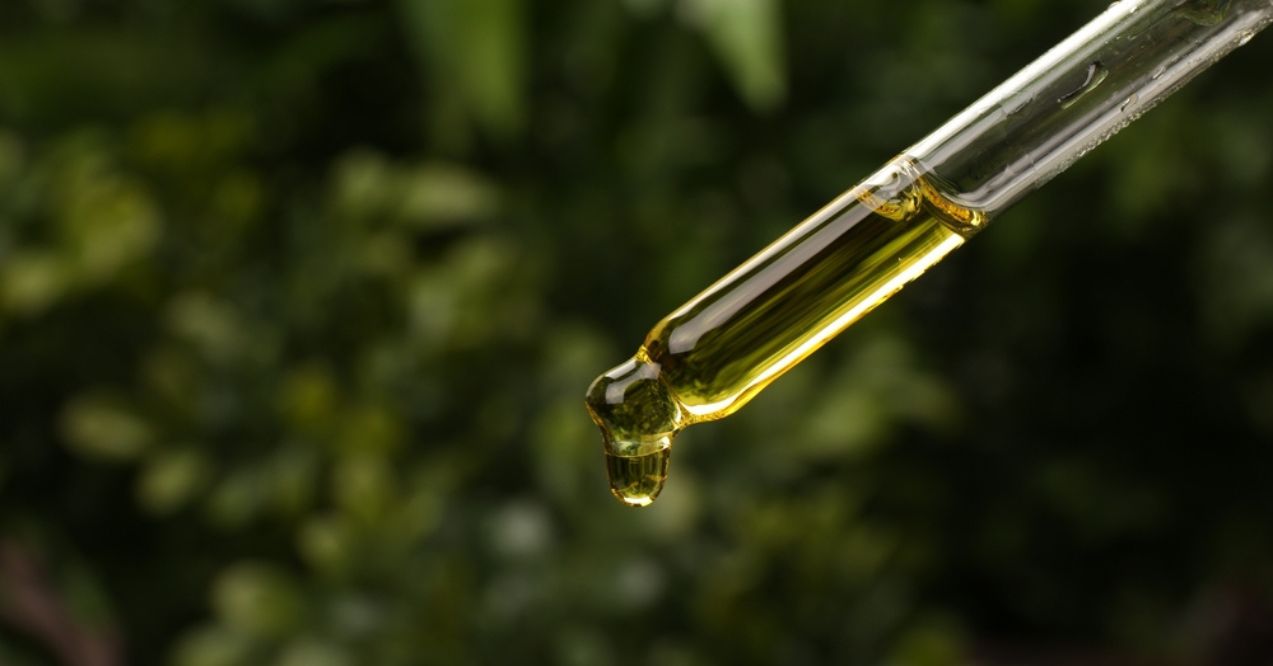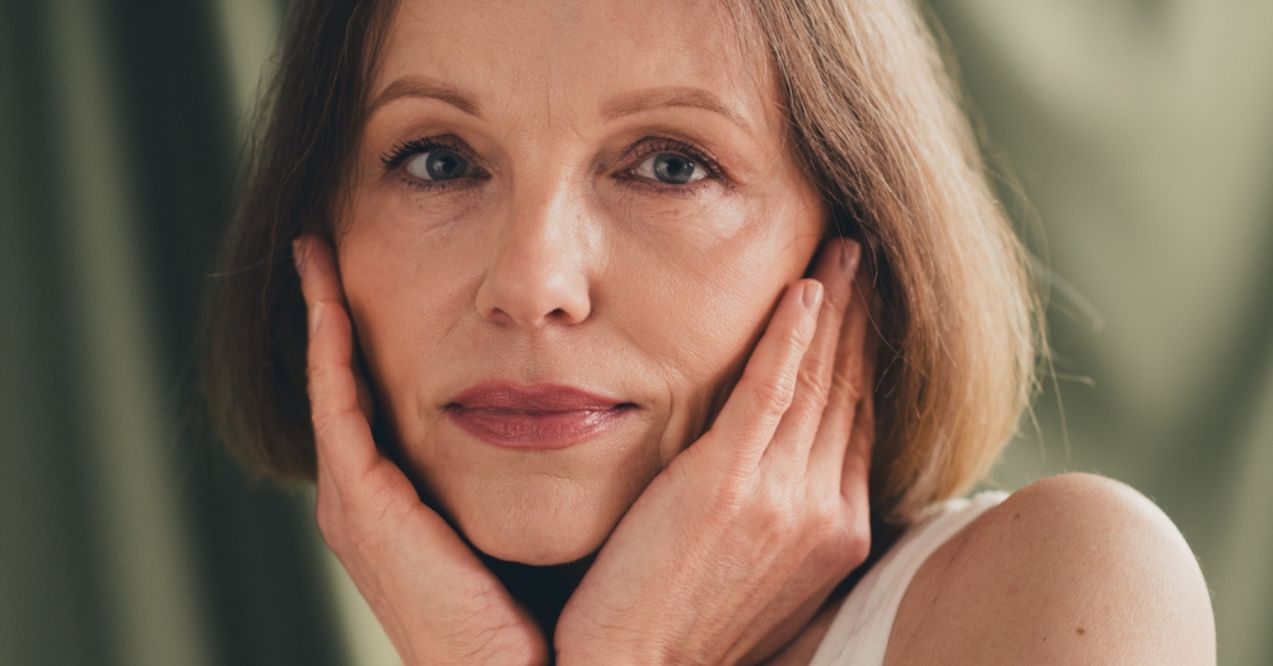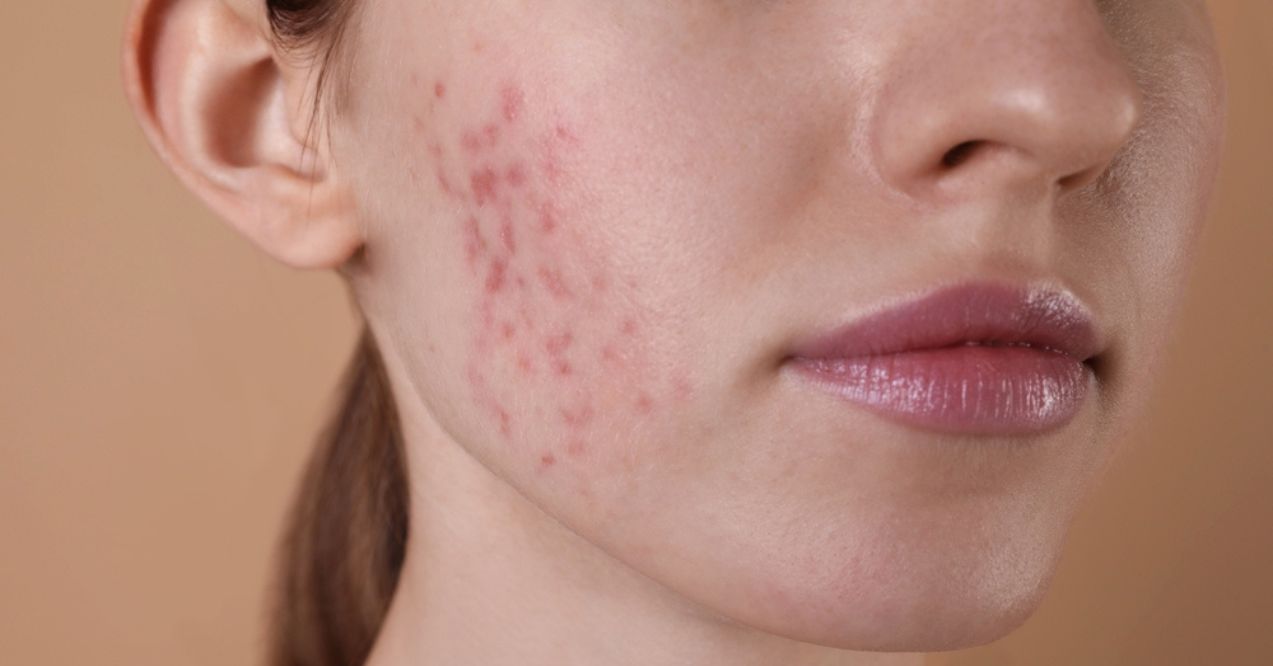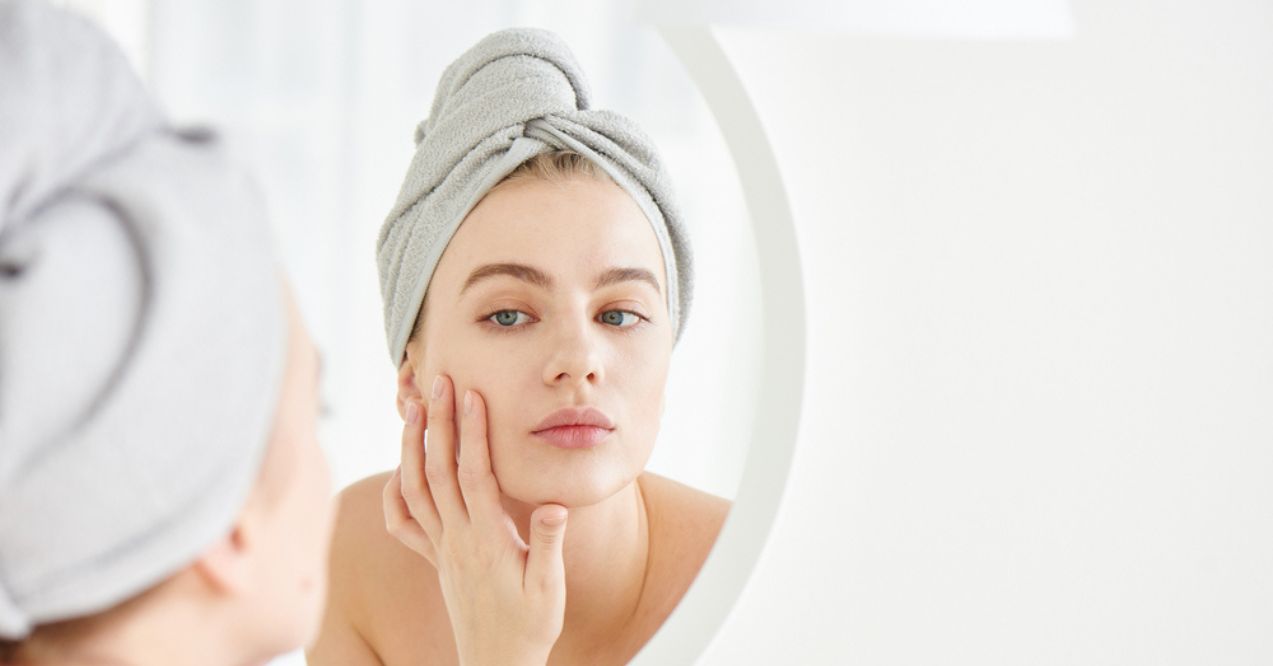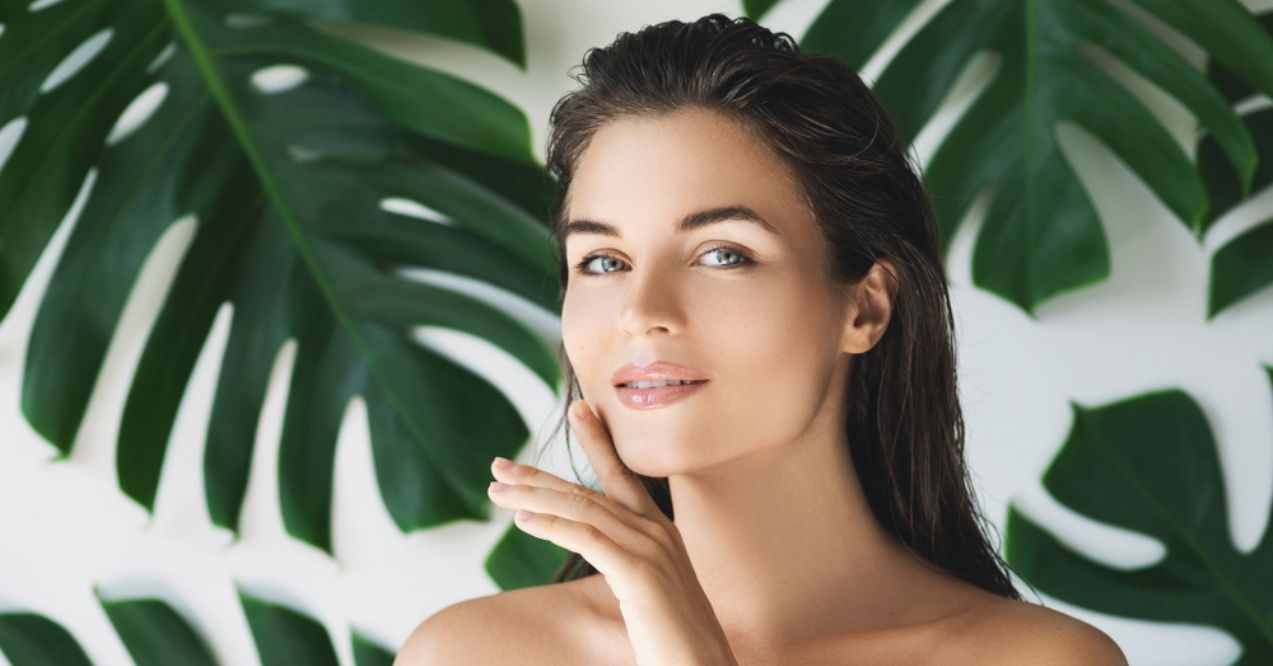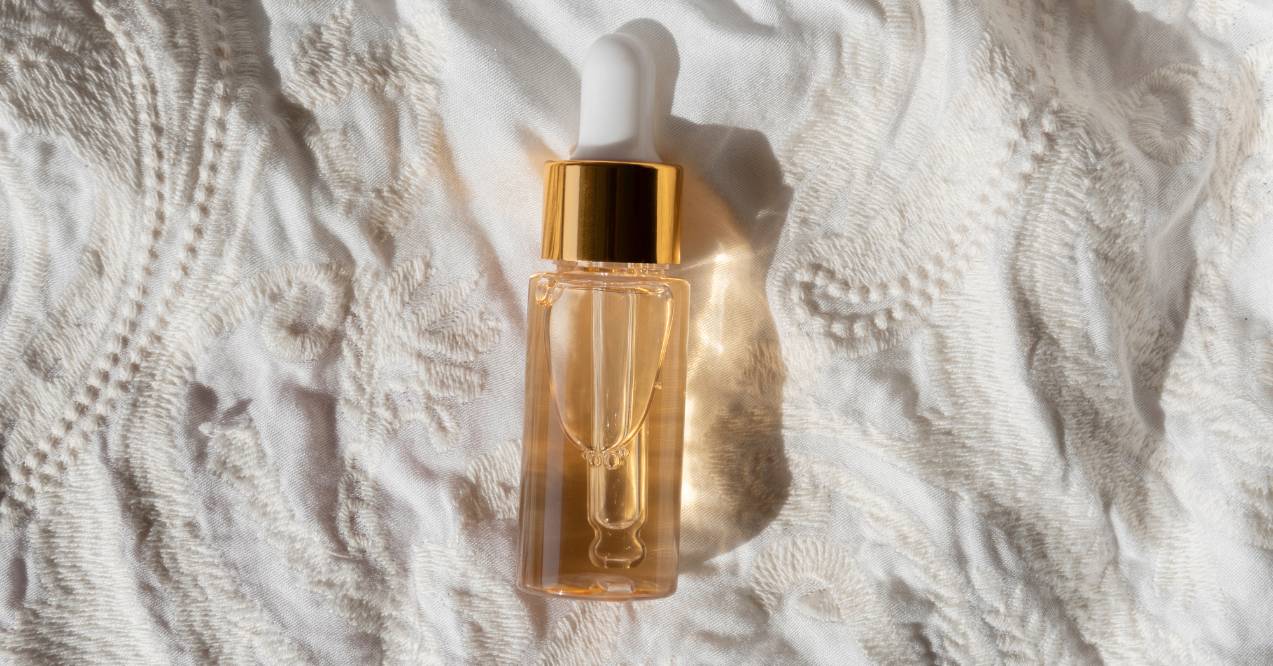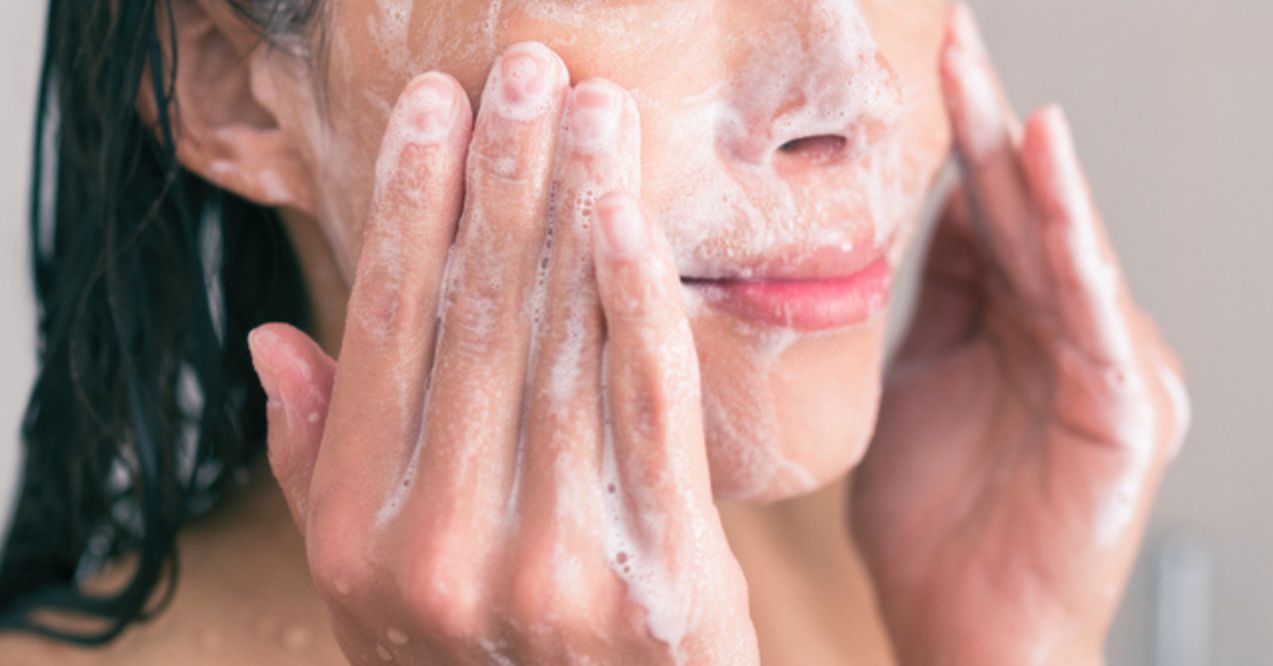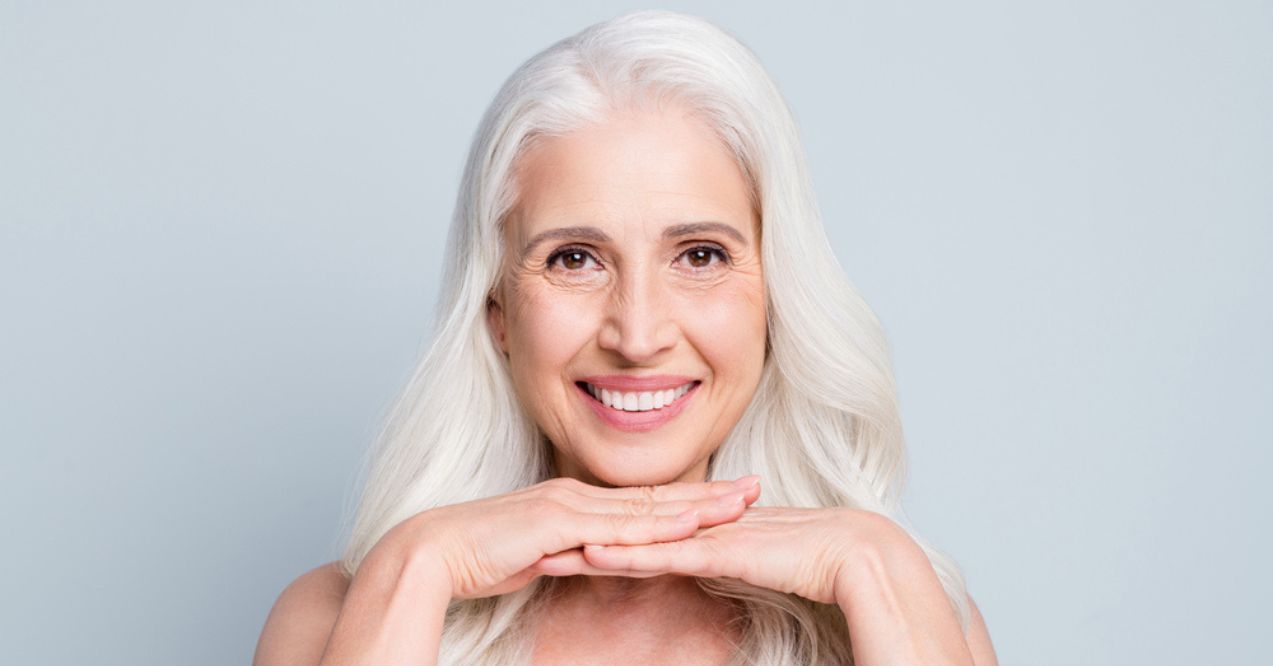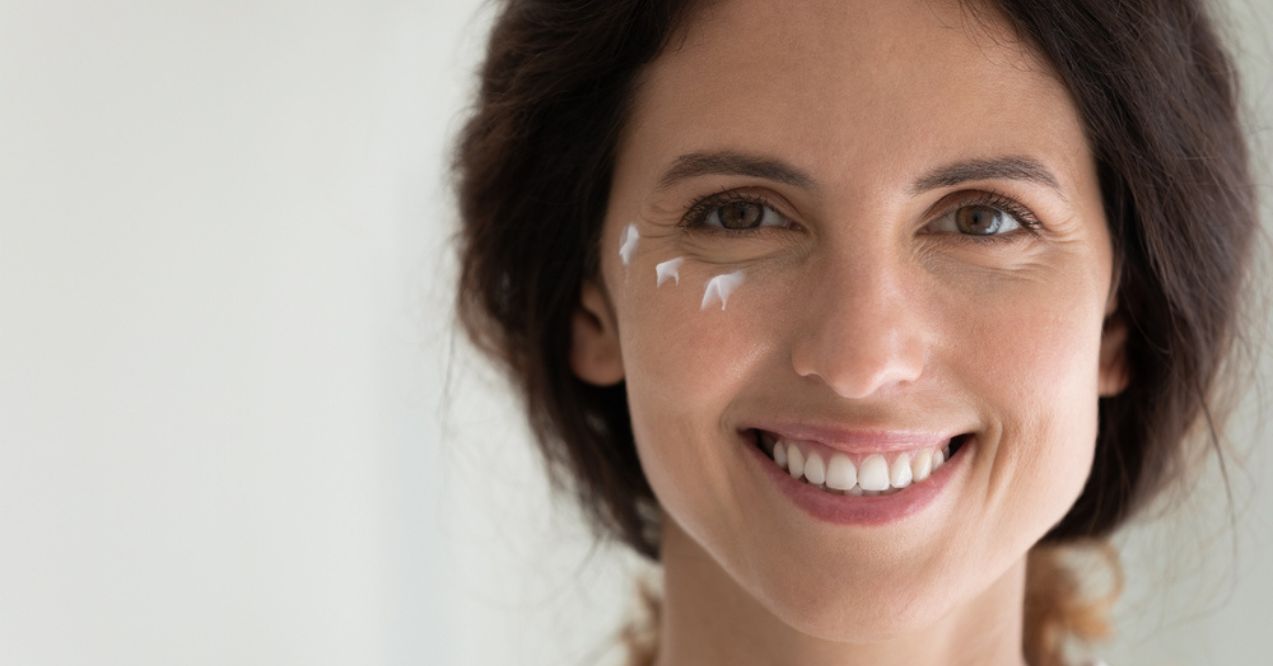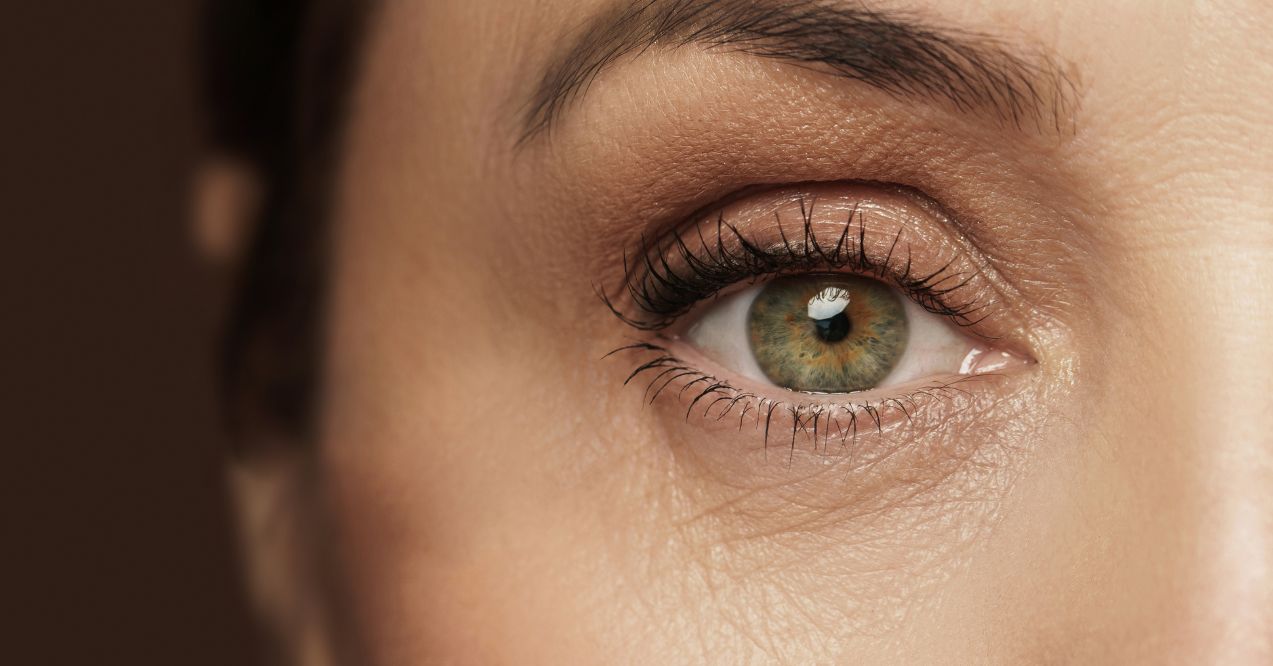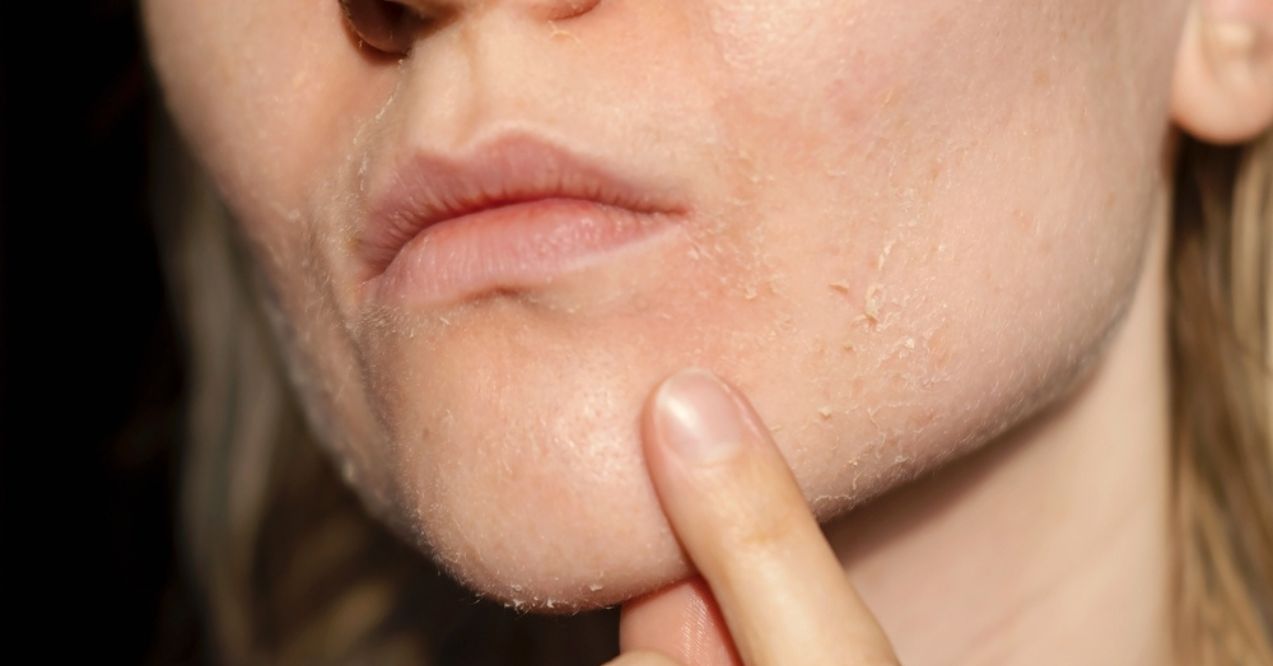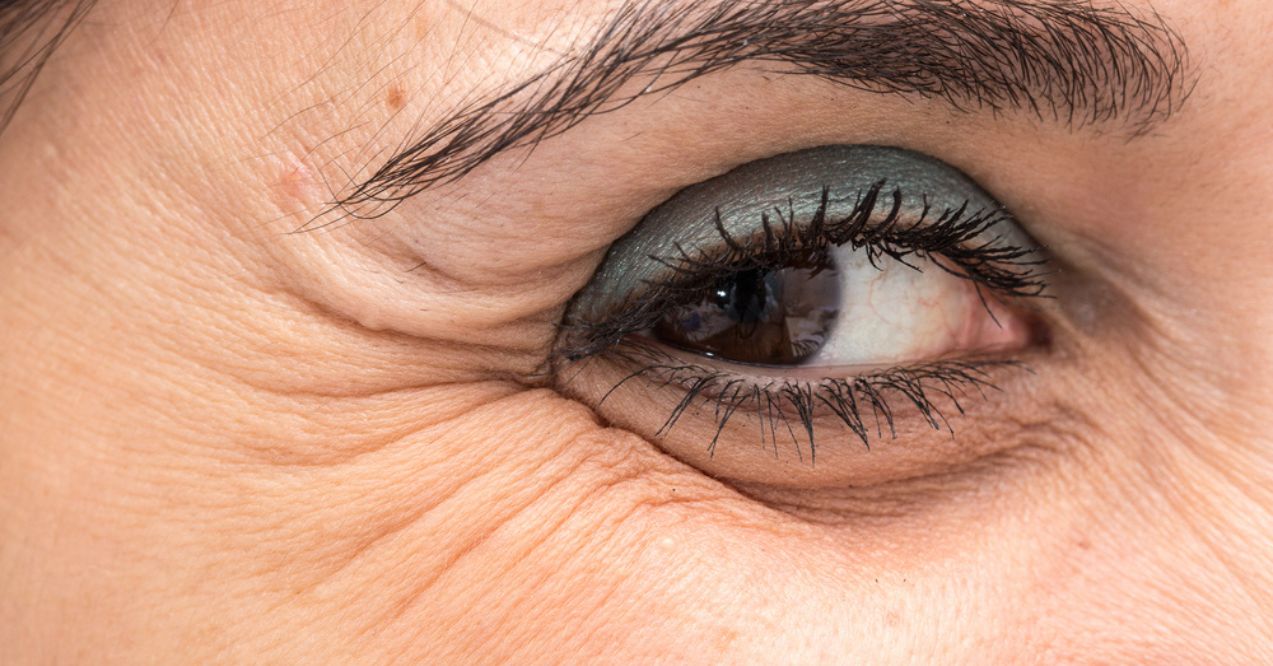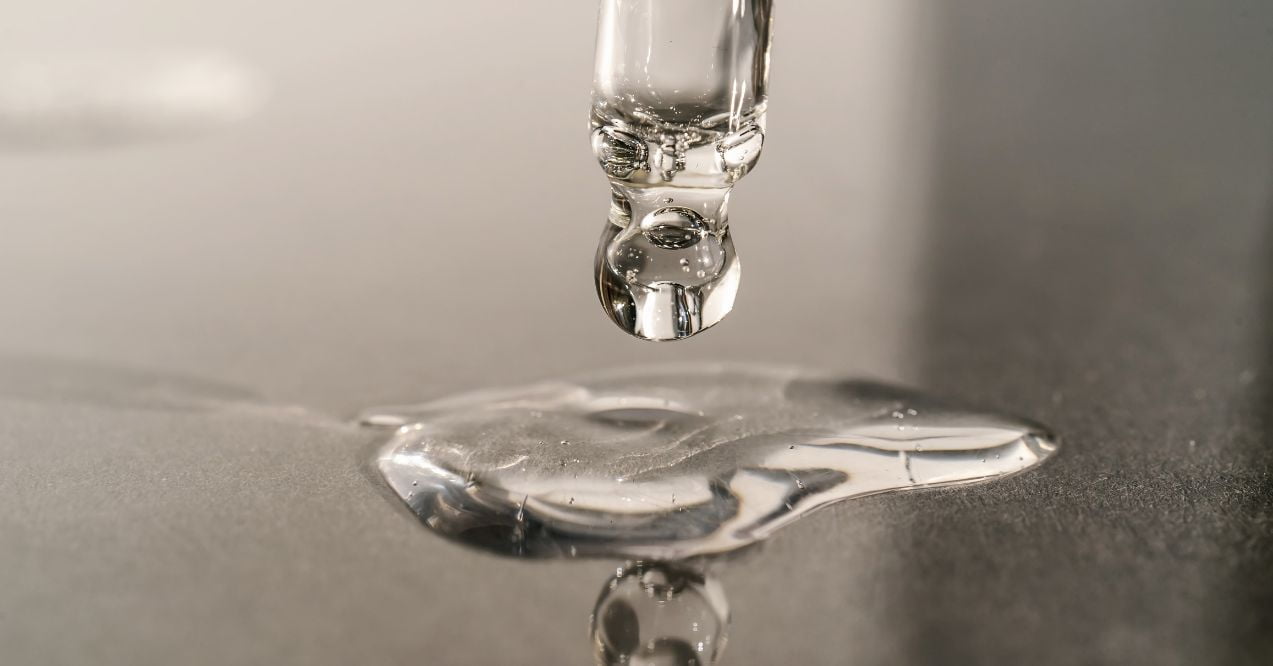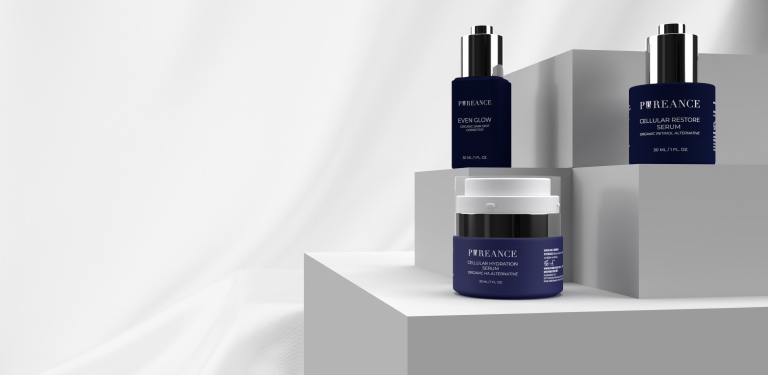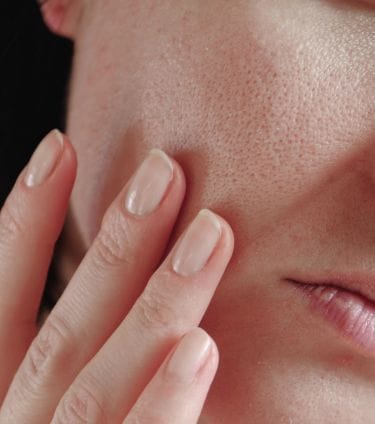
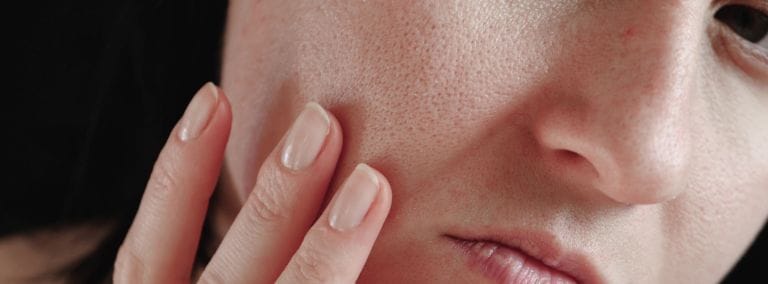

What Causes Clogged Pores?
What causes clogged pores? This common skin concern can leave you frustrated, especially when it persists despite your best efforts. The truth is, the culprits behind clogged pores aren’t always obvious.
In fact, some of the biggest troublemakers might be hiding in plain sight. This article uncovers seven unexpected factors that could be sabotaging your clear skin goals.
Key Article Findings
- Clogged pores result from more than just oil and bacteria. Surprising factors like dirty pillowcases, smartphones, and air pollution can play a significant role.
- Skincare habits matter. Overusing products, skipping post-workout cleansing, and neglecting makeup tool hygiene can contribute to pore congestion.
- Lifestyle choices impact your skin. Hormonal changes, diet, and even the timing of your skincare routine can influence pore health and clarity.
How Do Pores Get Clogged?
To understand what clogs pores, let’s start with the basics. Pores are tiny openings in your skin that house hair follicles and oil glands. These glands produce sebum, which is essential for keeping your skin moisturized and protected.
However, pores can become clogged when:
- Excess sebum is produced
- Dead skin cells don’t shed properly
- Bacteria builds up on the skin
When these factors combine, they create a “plug” in your pore. If this plug is open to the air, it oxidizes and darkens, forming a blackhead (open comedone). If it’s closed off from the air, it remains white, creating a whitehead (closed comedone).
9 Unexpected Factors Contributing to Clogged Pore
Now, let’s explore some surprising factors that might be contributing to your clogged pores. Some of these might make you rethink your daily habits!
1. Your Pillowcase

You spend about a third of your life with your face pressed against your pillowcase. Over time, pillowcases accumulate:
- Oils from your skin and hair
- Dead skin cells
- Bacteria
This mixture of substances transfers back to your face night after night, potentially leading to clogged pores.
Tips for pillowcase hygiene:
- Change your pillowcase at least once a week
- Consider silk or bamboo fabrics, which are gentler on skin
- Explore “beauty pillowcases” with antimicrobial properties
2. Overuse of Skincare Products
Layering too many products may lead to:
- Product buildup on the skin’s surface
- Creation of a film that traps debris in pores
- Overwhelmed skin that can’t properly absorb beneficial ingredients
How to avoid skincare overload:
- Stick to a minimalist routine with essential products for your skin type
- Consider occasional breaks from products
- Pay attention to how your skin reacts to different product combinations
3. Your Smartphone

Smartphones may not be the best friends to our skin. Here’s why:
- Phones accumulate bacteria and oils from various surfaces
- Heat generated during use can increase oil production in areas of contact
- Constant touching transfers these substances to your face
Smartphone skincare tips:
- Clean your phone regularly with appropriate sanitizing products
- Use earphones or speakerphone to minimize skin contact
- Avoid resting your phone against your face during calls
4. Post-Workout Habits
Leaving sweat on your skin post-workout can spell trouble for your pores. Sweat mixed with bacteria on the skin can lead to clogged pores if not addressed promptly.
Post-workout skincare essentials:
- Cleanse your face as soon as possible after exercising
- Keep salicylic acid wipes handy for on-the-go cleansing
- Change out of sweaty clothes promptly to avoid body acne
5. Air Pollution
Air pollution isn’t just bad for your lungs; it can affect your skin too. Airborne pollutants can settle on your skin, potentially leading to:
- Clogged pores
- Dull complexion
- Accelerated skin aging
Protecting your skin from pollution:
- Use antioxidant-rich serums to combat free radical damage
- Double cleanse in the evening to thoroughly remove pollutants
- Consider using a lightweight, non-comedogenic sunscreen daily
6. Hormonal Fluctuations
Hormones play a significant role in skin health, including oil production and pore behavior. Hormonal changes can lead to:
- Increased sebum production
- Changes in skin cell turnover
- Inflammation that can exacerbate pore issues
These hormonal shifts are often overlooked causes of clogged pores. Managing hormonal skin changes:
- Pay attention to how your skin changes throughout your menstrual cycle
- Consider adjusting your skincare routine based on hormonal fluctuations
- Explore gentle, balancing skincare ingredients like niacinamide
7. Certain Foods
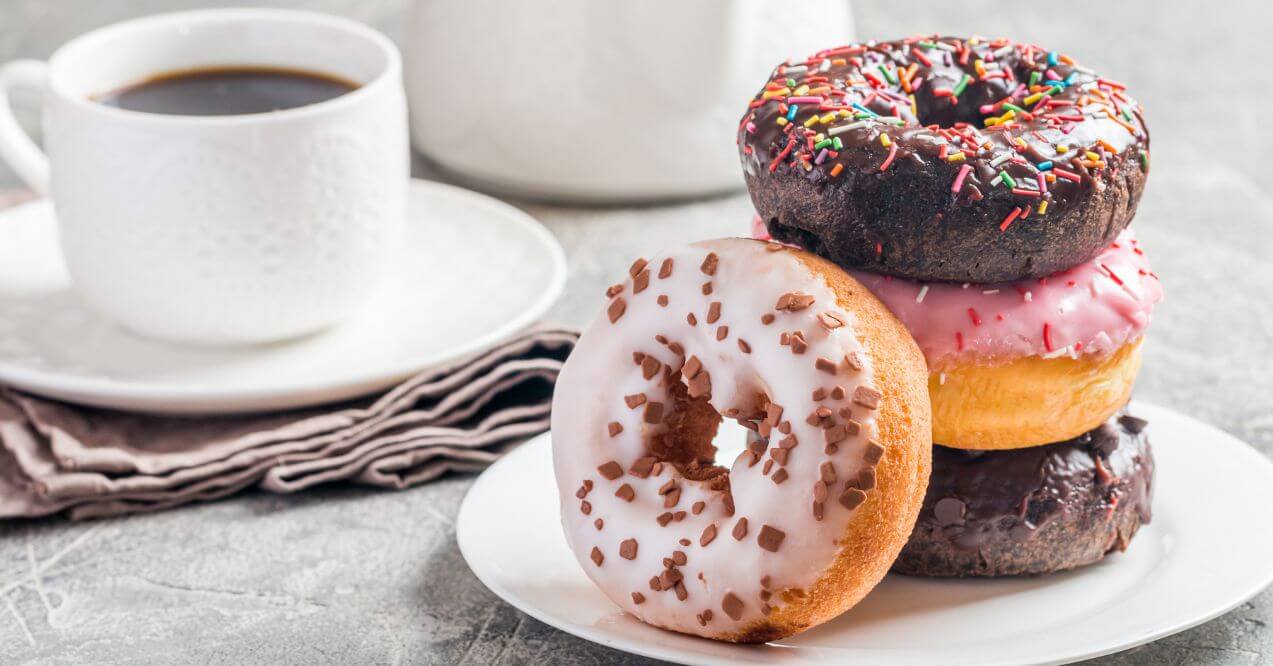
What you eat can indeed affect your skin, including your pores. While everyone’s skin reacts differently to various foods, some common culprits include:
- Foods high in refined sugars
- Dairy products (for some individuals)
- Highly processed foods
Understanding the link between diet and skin can help address the question of “Why are my pores so clogged?” even when you’re following a good skincare routine.
Skin-friendly eating tips:
- Focus on a balanced diet rich in fruits, vegetables, and whole grains
- Stay hydrated by drinking plenty of water
- Consider incorporating skin-loving foods like fatty fish, nuts, and seeds
8. Makeup Brushes and Sponges
Your makeup tools could be secret pore-clogging culprits. Dirty brushes and sponges can harbor:
- Bacteria
- Old makeup residue
- Oils from previous applications
All of these can transfer to your skin, potentially leading to clogged pores. This often-overlooked factor is a key answer to “What clogs pores?” for many makeup enthusiasts.
9. Chronobiology of Skin
Your skin follows its own internal clock. This fascinating field of study, known as chronobiology, reveals that skin functions, including sebum production and cell turnover, follow circadian rhythms.
What this means for your pores:
- Oil production tends to be higher in the afternoon and evening
- Skin cell turnover is more active at night
- Your skin might be more receptive to certain treatments at specific times of day
Using this knowledge:
- Consider using oil-absorbing products in the afternoon
- Apply your most potent treatments before bed to align with increased cell turnover
- Be extra diligent with evening cleansing to remove the day’s accumulation of oil and debris
Conclusion
What causes clogged pores? They often result from excess oil, dead skin cells, and bacteria, but factors like pillowcases, smartphones, and air pollution can also contribute. Proper skincare, hygiene, and attention to diet and hormonal changes are key to managing pore health. Since everyone’s skin is unique, adjust your routine to what works best for you. With the right care, you can achieve clearer, healthier-looking pores!
Yes, face masks can contribute to clogged pores. They create a warm, humid environment that traps sweat, oil, and bacteria against the skin. To minimize this, use breathable masks, cleanse your face regularly, and take mask breaks when safe.
Hard water can contribute to clogged pores. Its high mineral content can leave residue on skin, potentially blocking pores. It may also disrupt the skin’s pH balance. Using a water softener or micellar water for final rinses can help.
Pore size is largely determined by genetics and age. While it’s not possible to permanently shrink pores, you can minimize their appearance through proper skincare, exfoliation, and treatments like retinoids or professional procedures.
Yes, makeup residue can cause clogged pores. When not removed properly, it can mix with oil and dead skin cells, blocking pores. Always remove makeup before bed, use non-comedogenic products, and clean makeup tools regularly.
This site offers health, wellness, fitness and nutritional information and is designed for educational purposes only. You should not rely on this information as a substitute for, nor does it replace, professional medical advice, diagnosis, or treatment. If you have any concerns or questions about your health, you should always consult with a physician or other health-care professional. Do not disregard, avoid or delay obtaining medical or health related advice from your health-care professional because of something you may have read on this site. The use of any information provided on this site is solely at your own risk.
Nothing stated or posted on this site or available through any services are intended to be, and must not be taken to be, the practice of medical or counseling care. For purposes of this agreement, the practice of medicine and counseling includes, without limitation, psychiatry, psychology, psychotherapy, or providing health care treatment, instructions, diagnosis, prognosis or advice.
